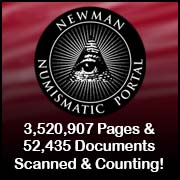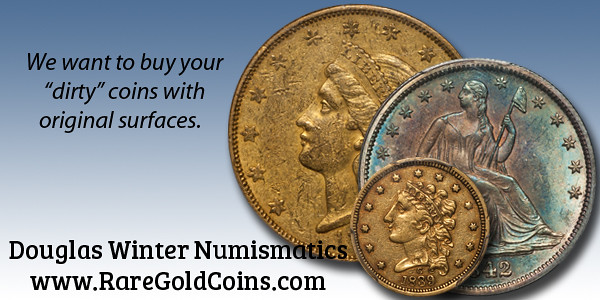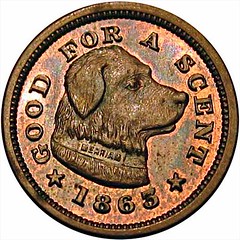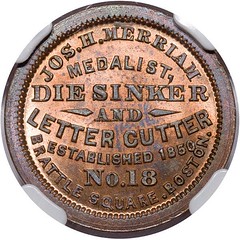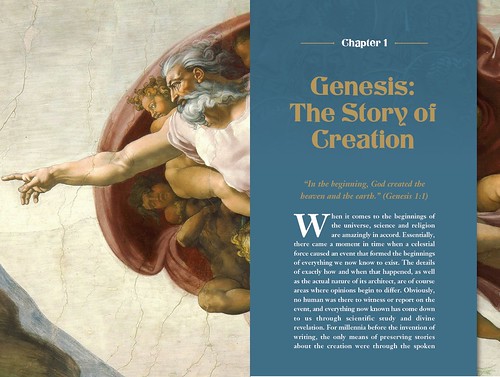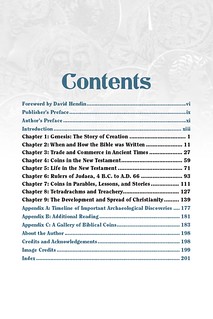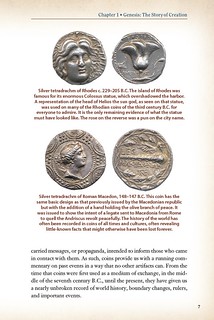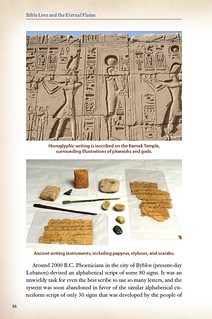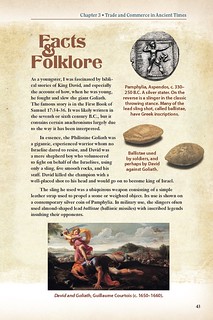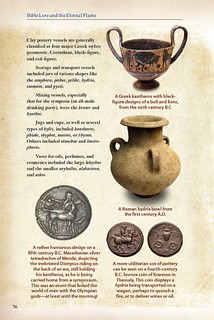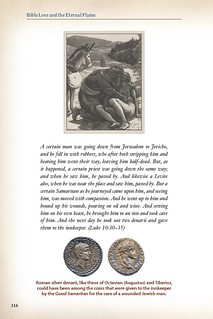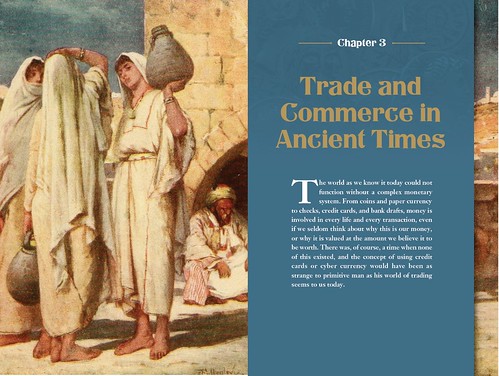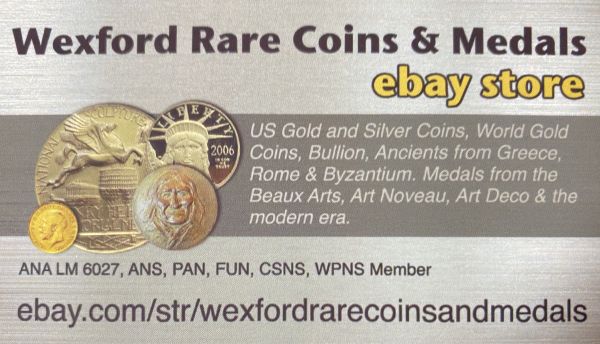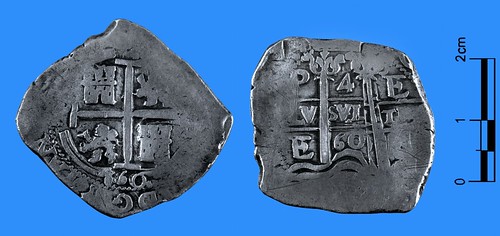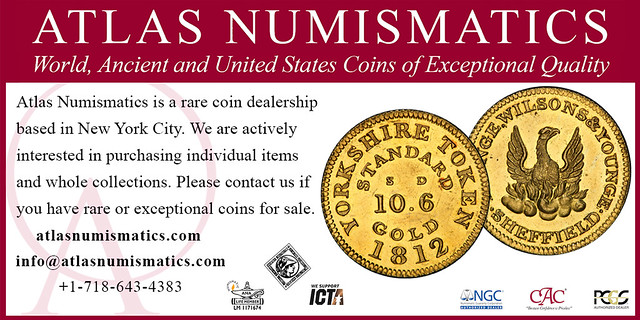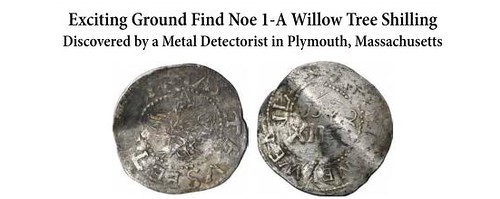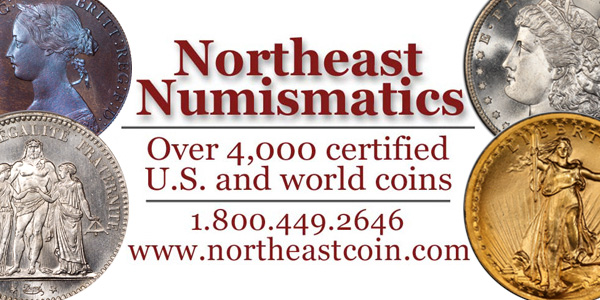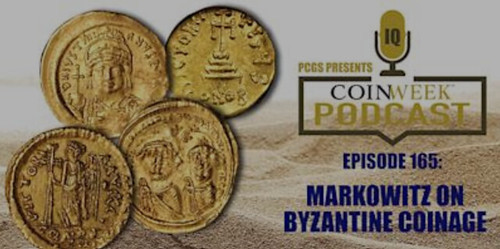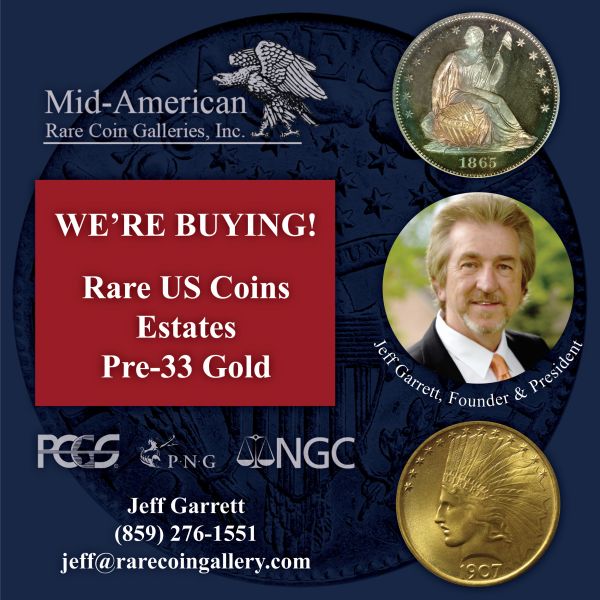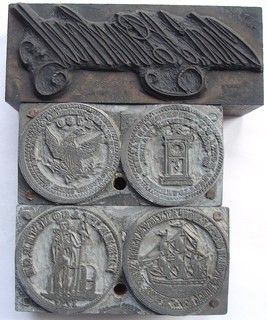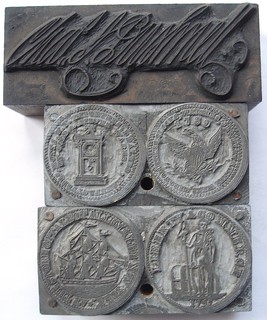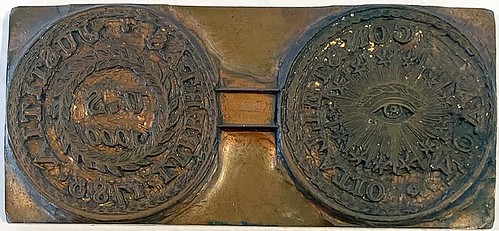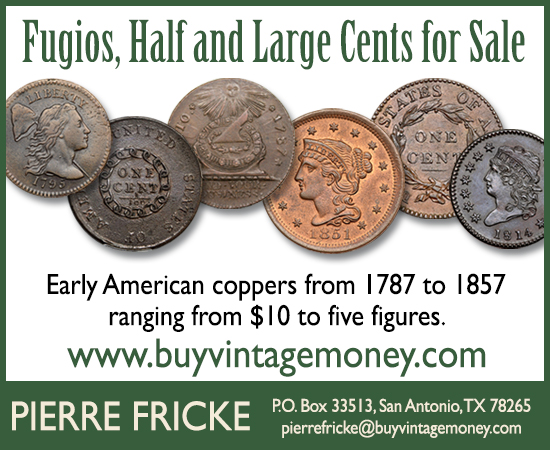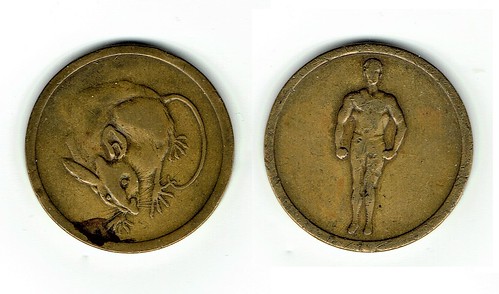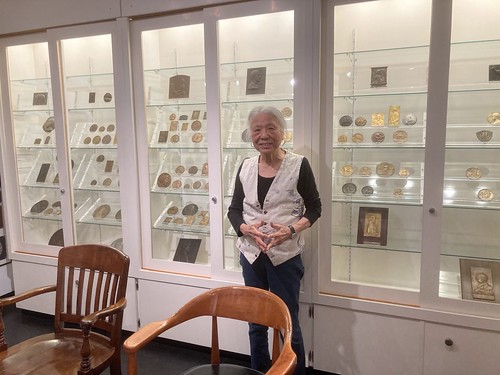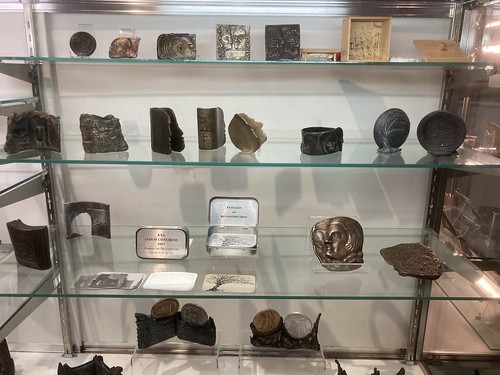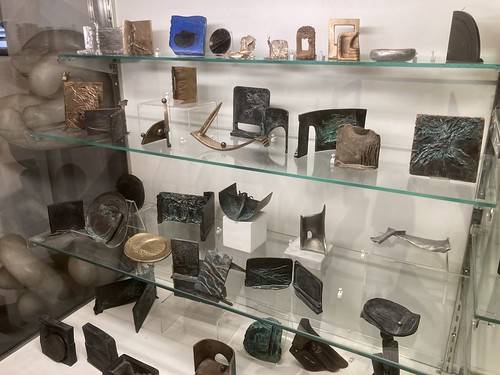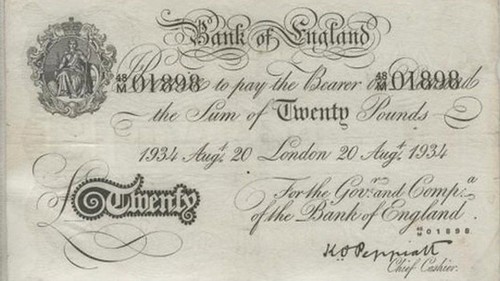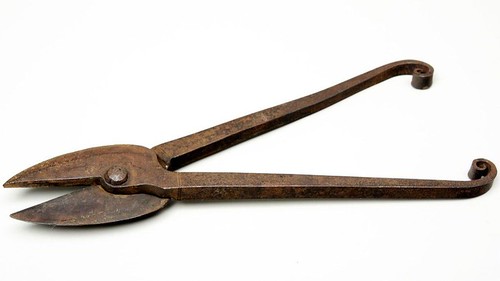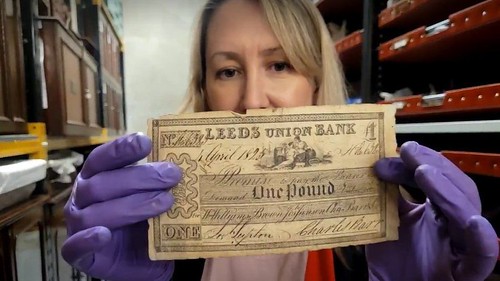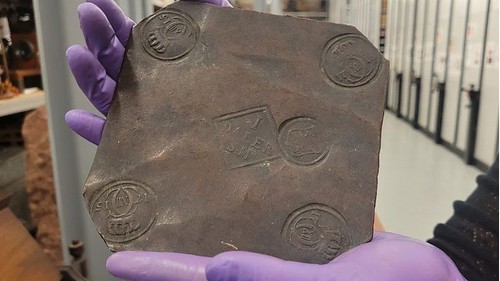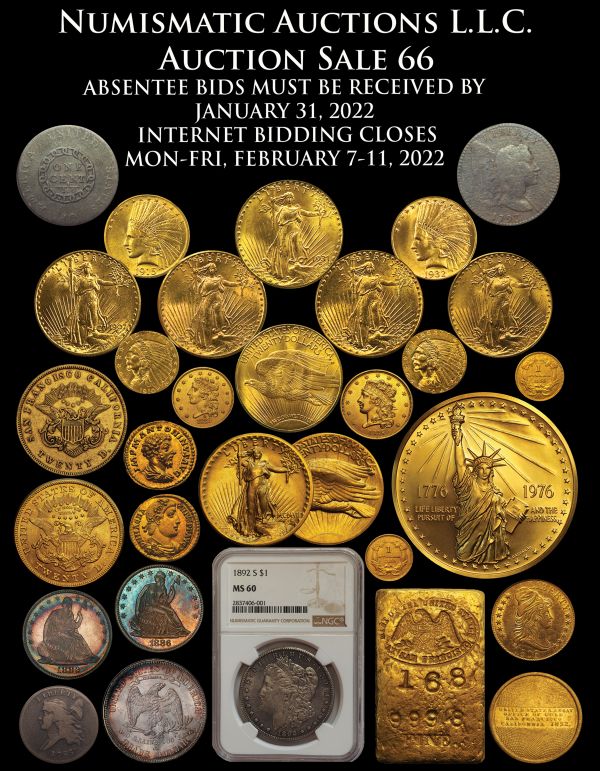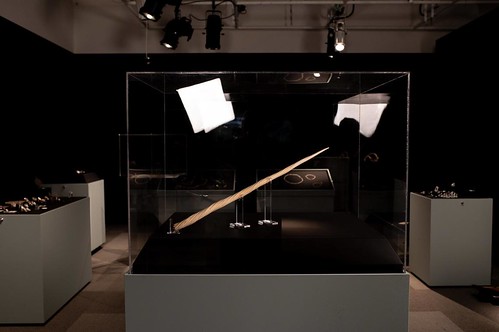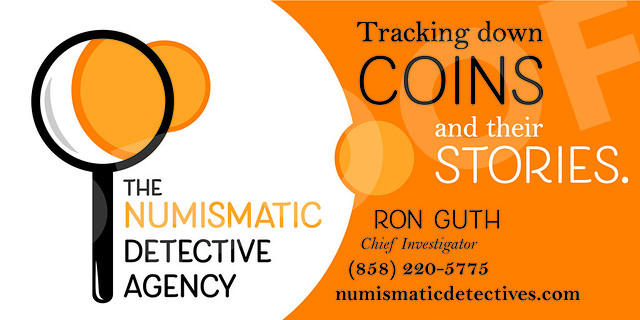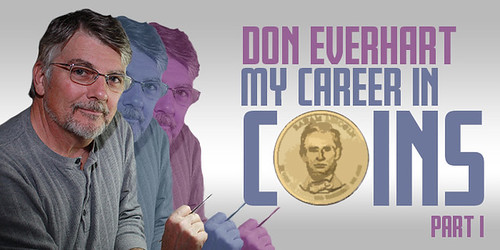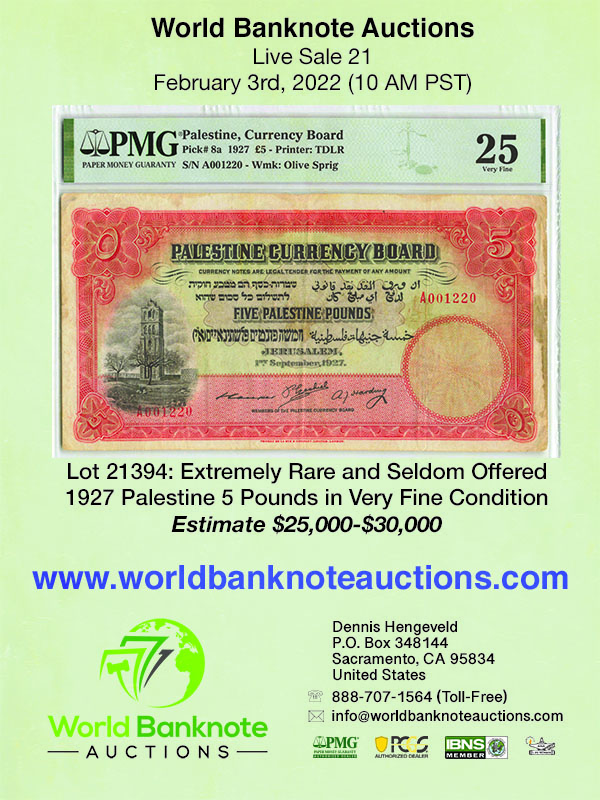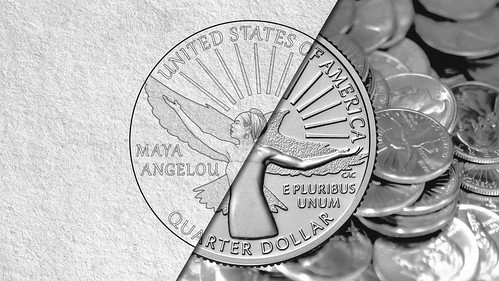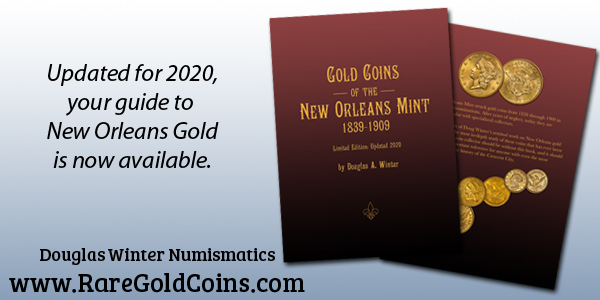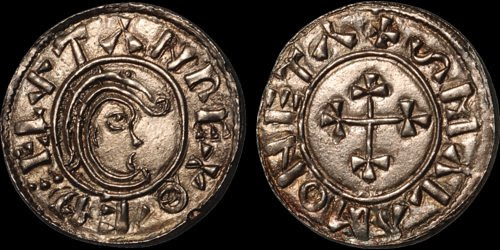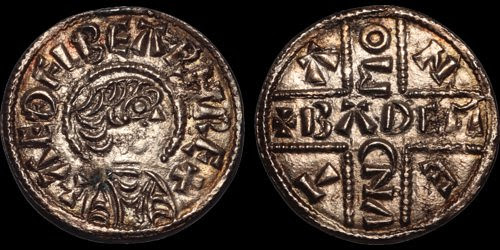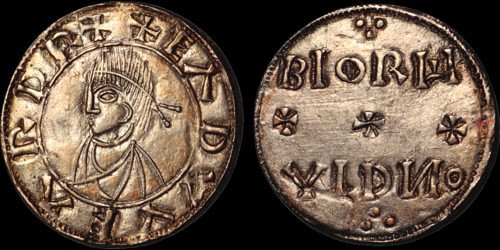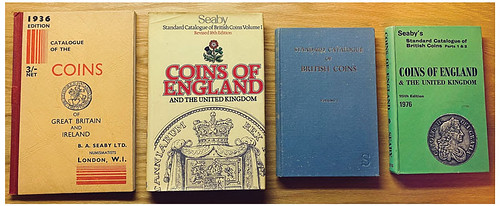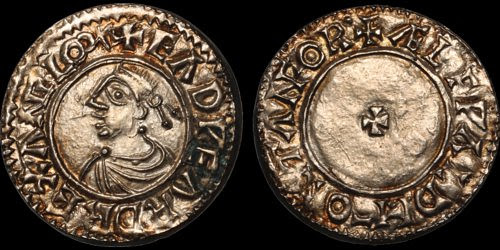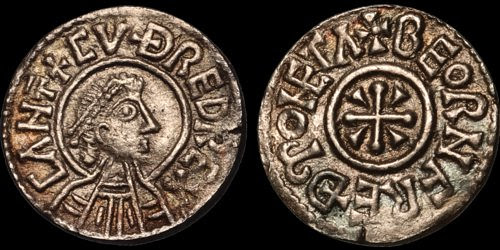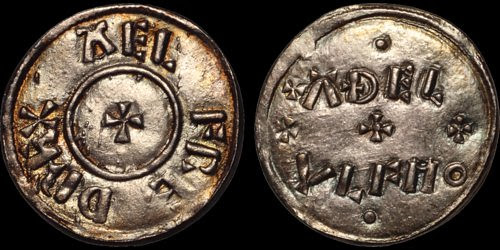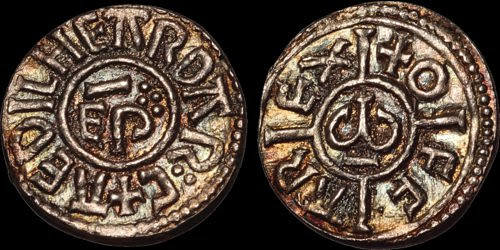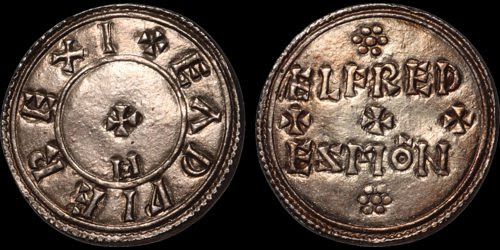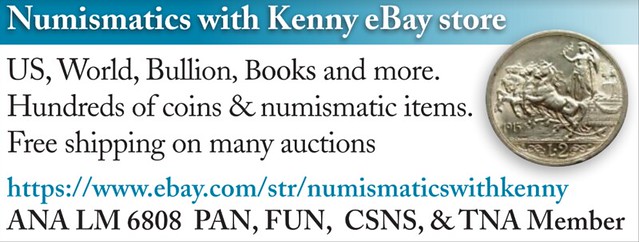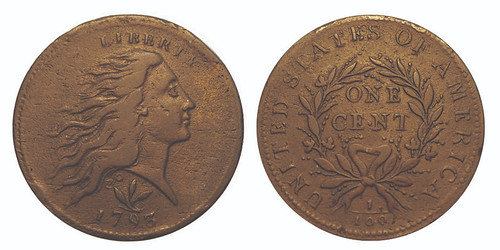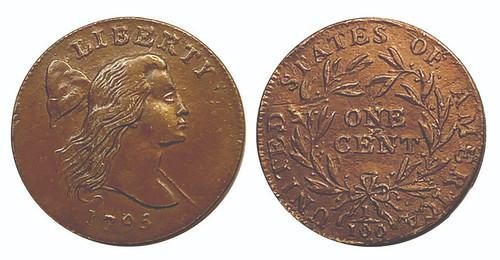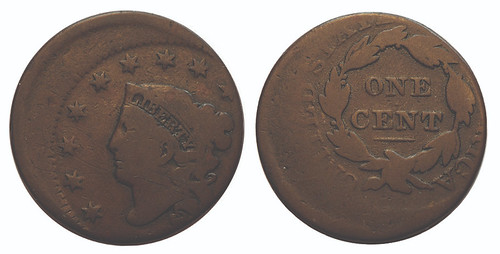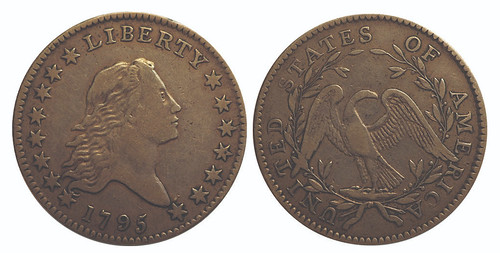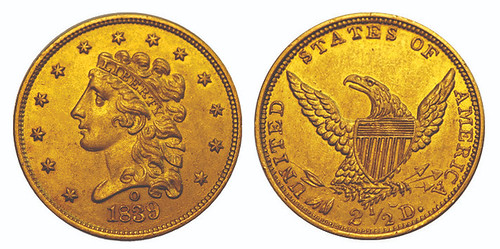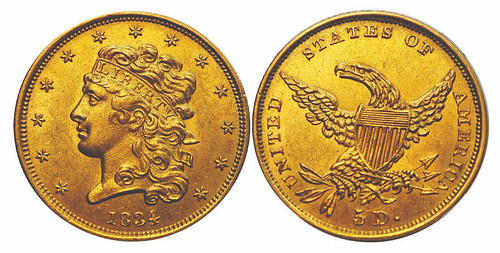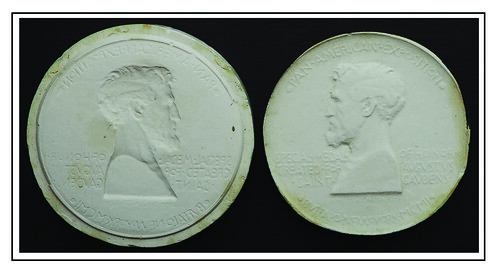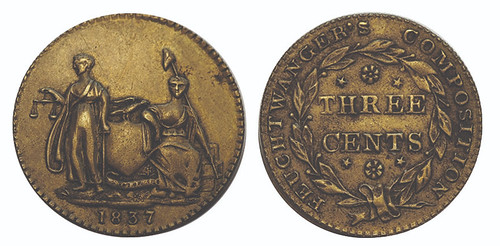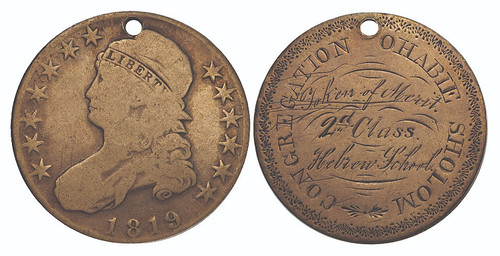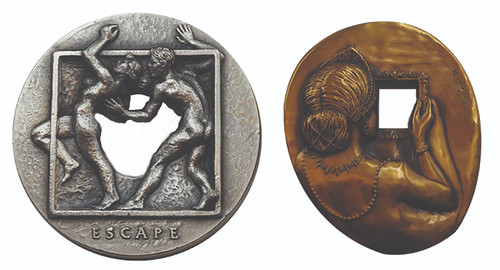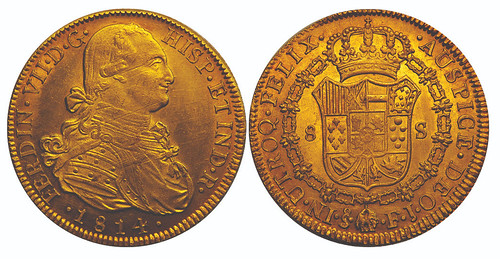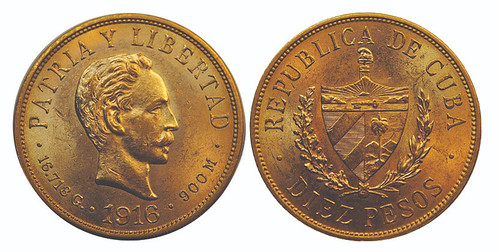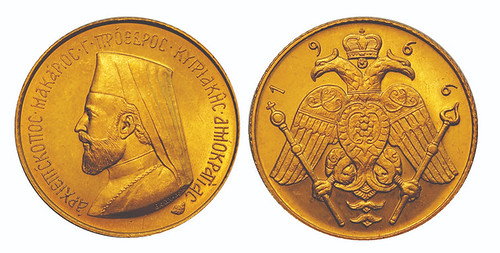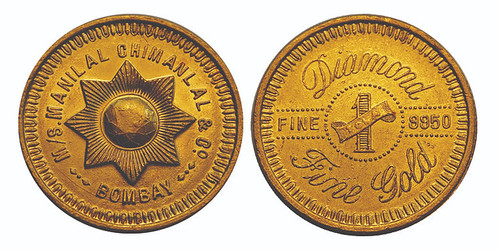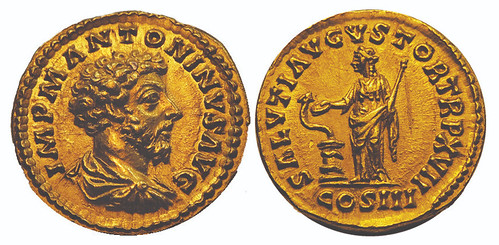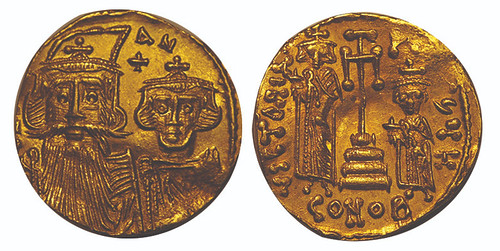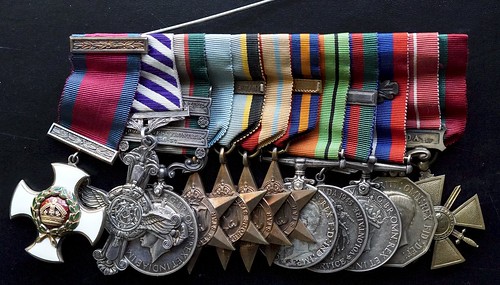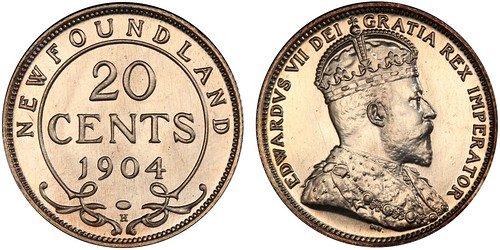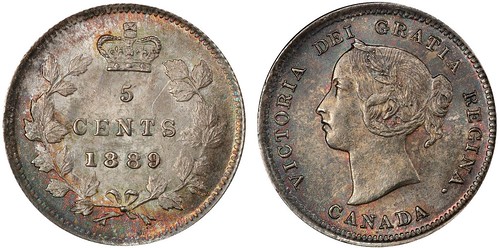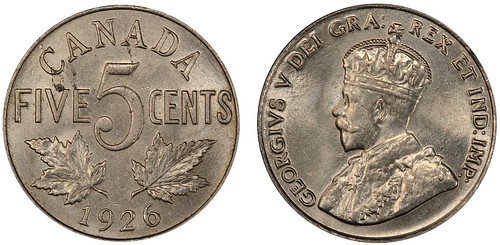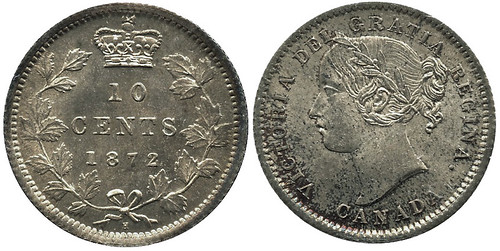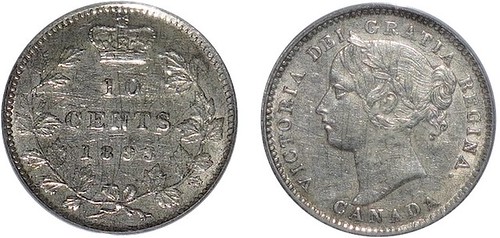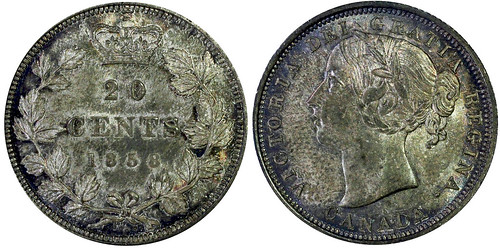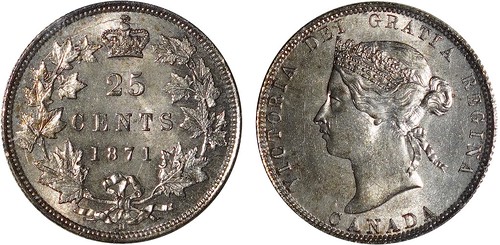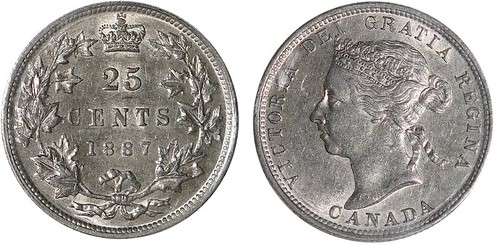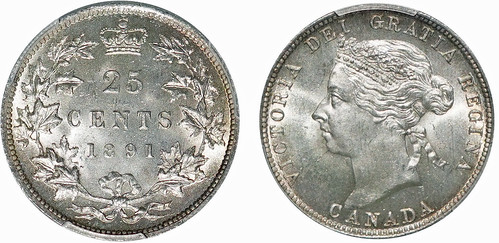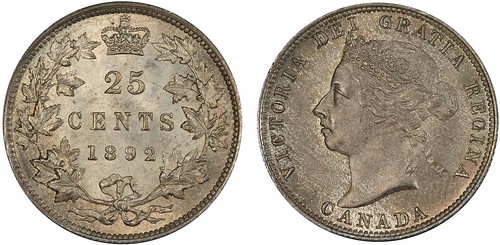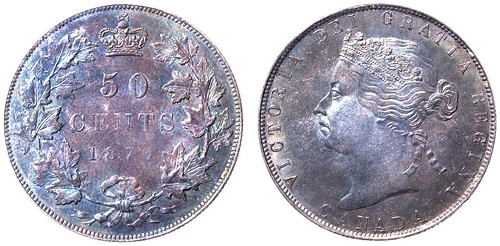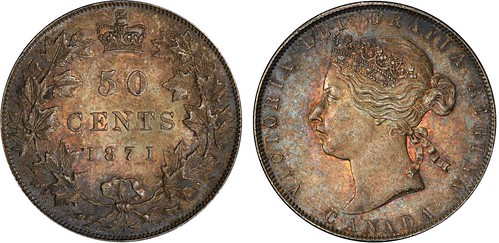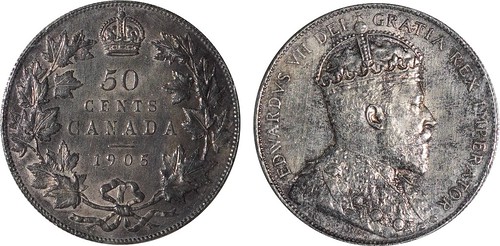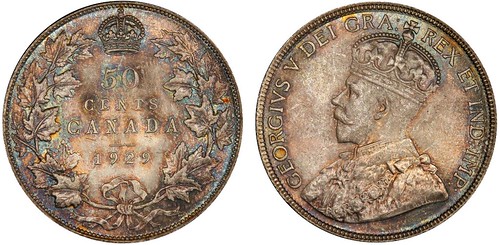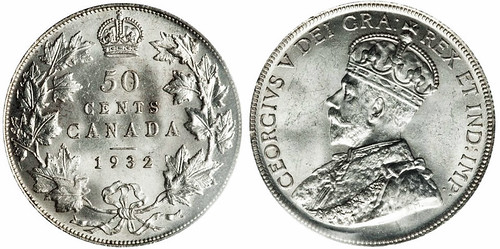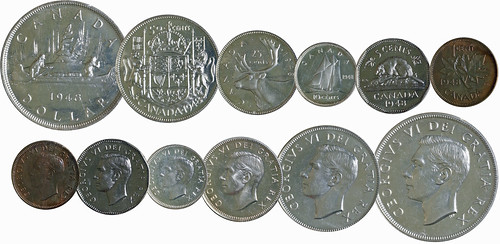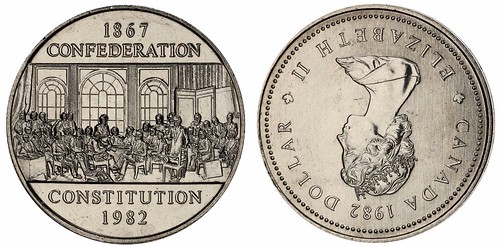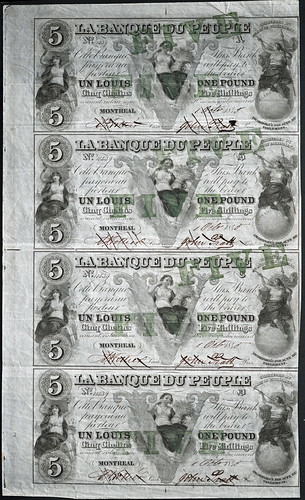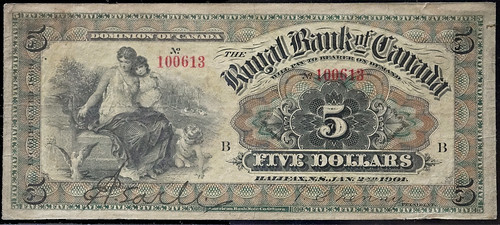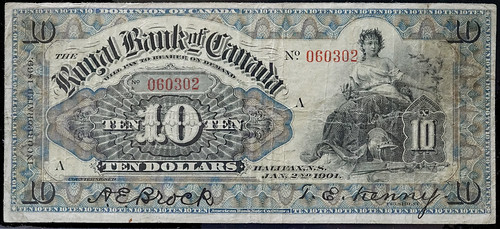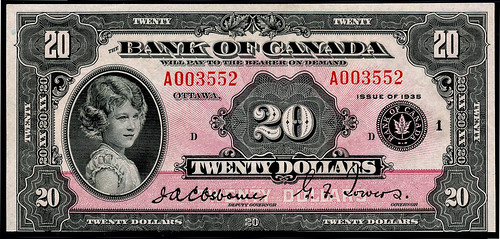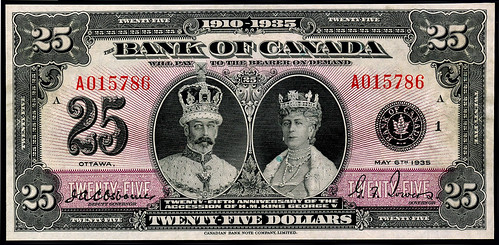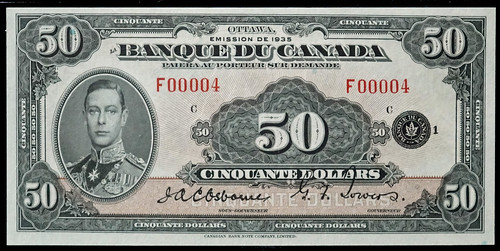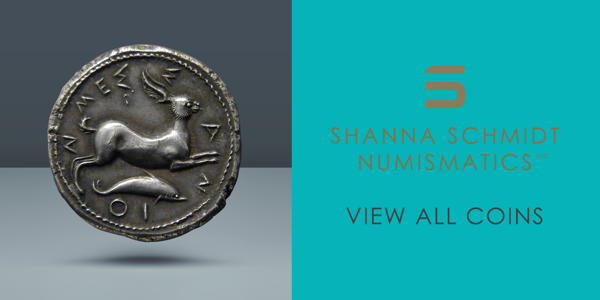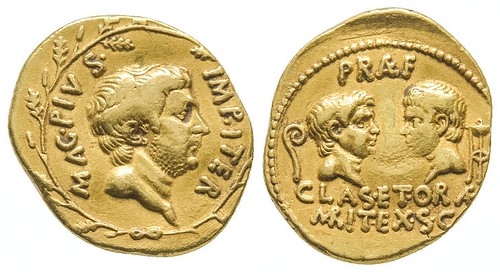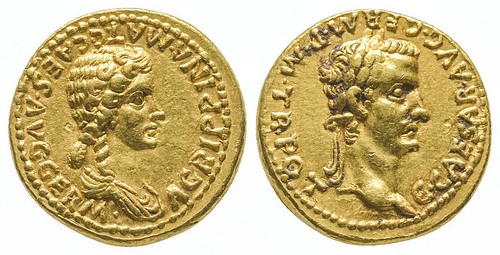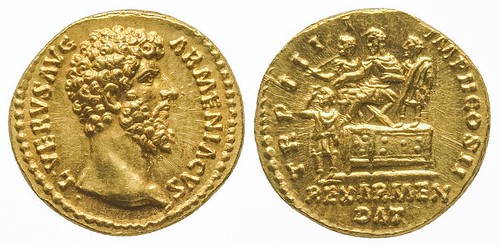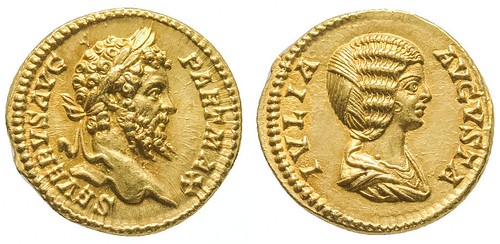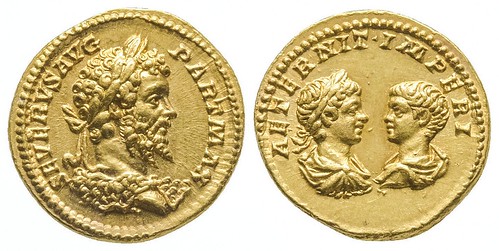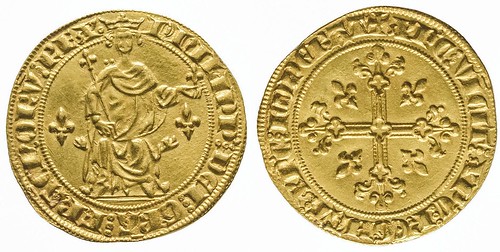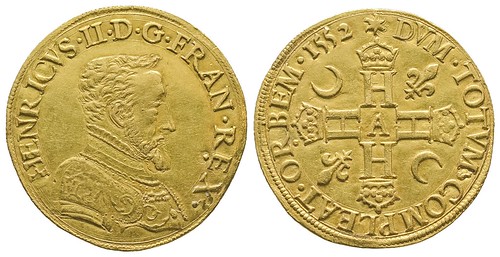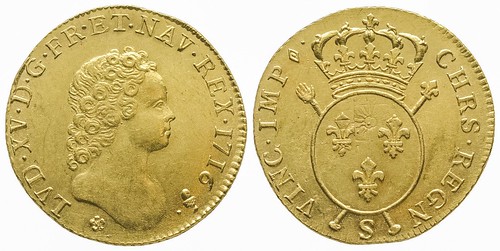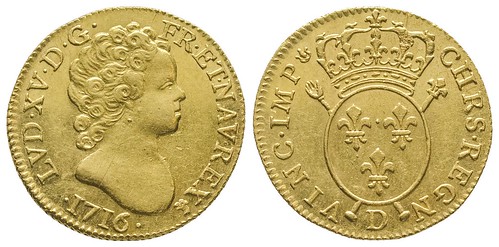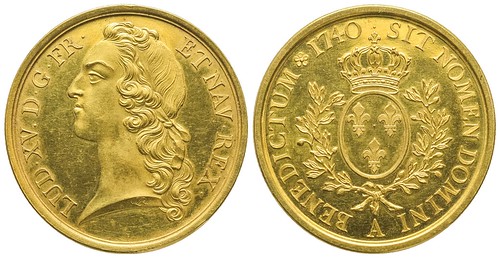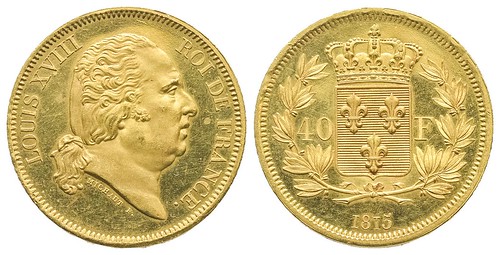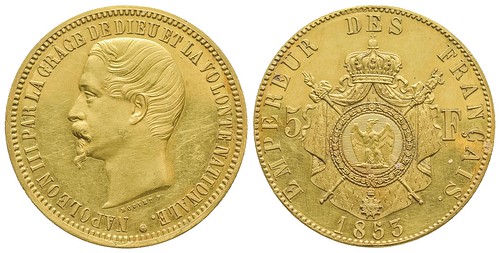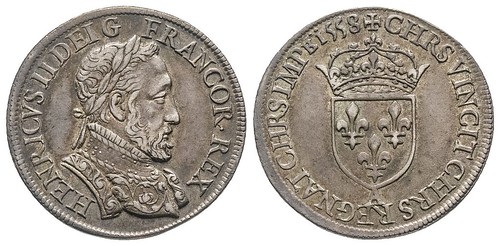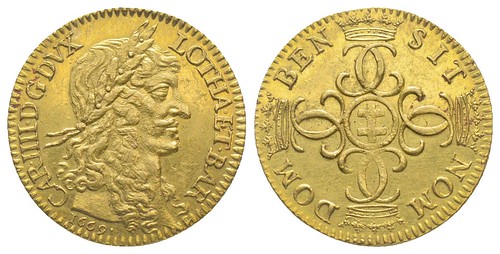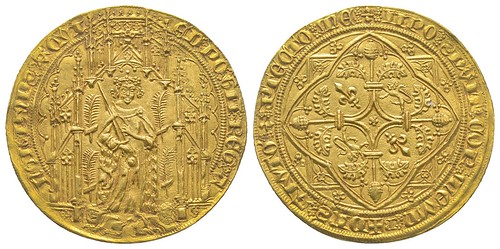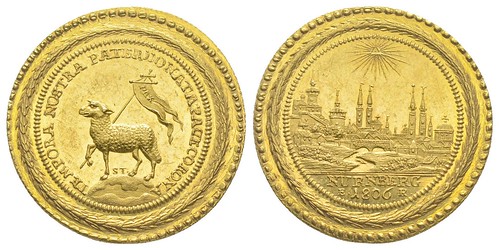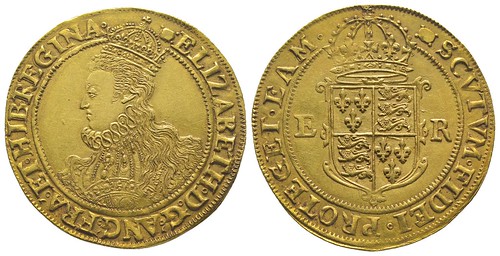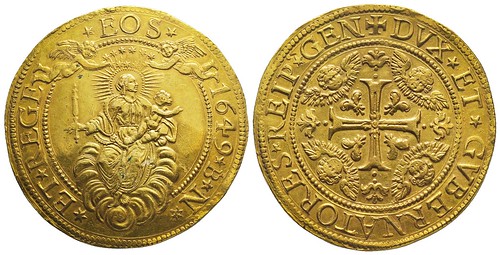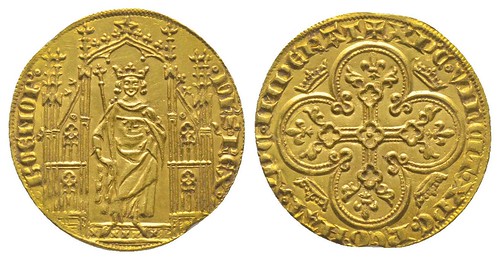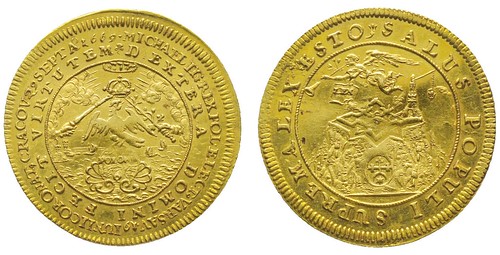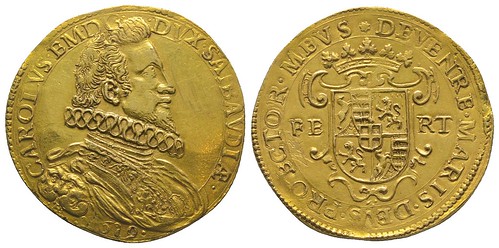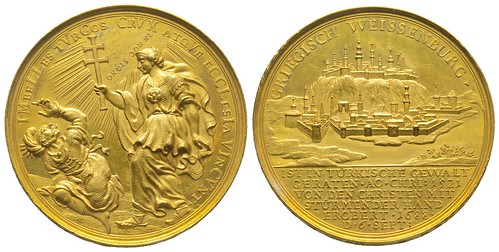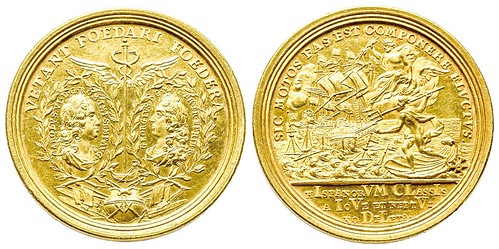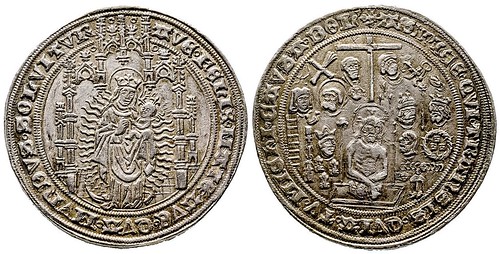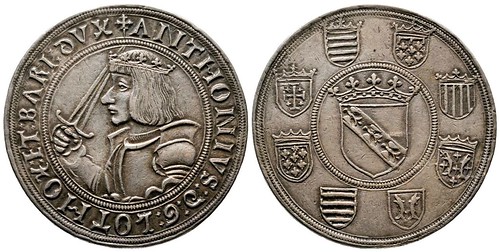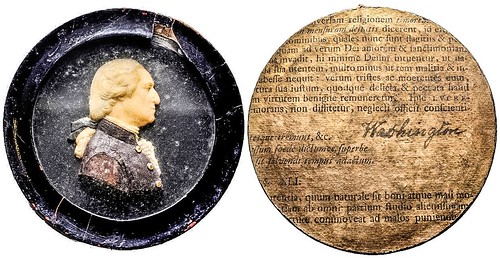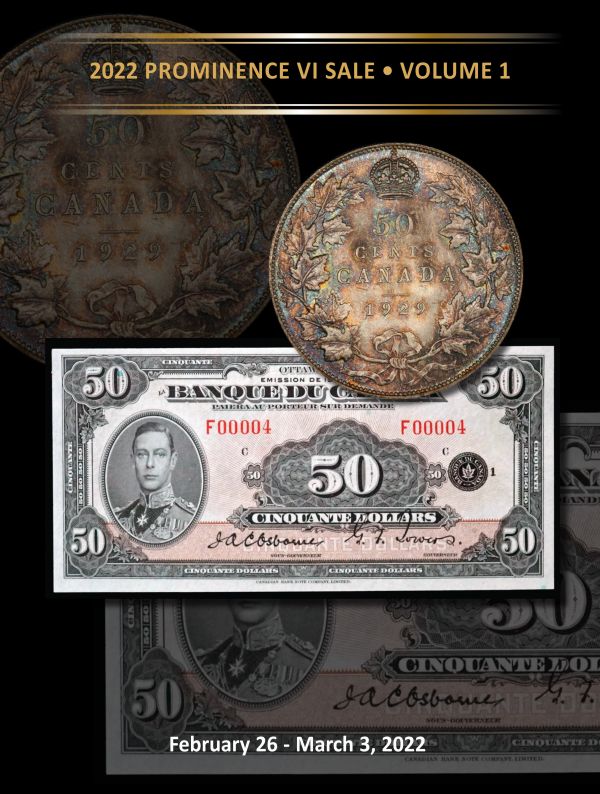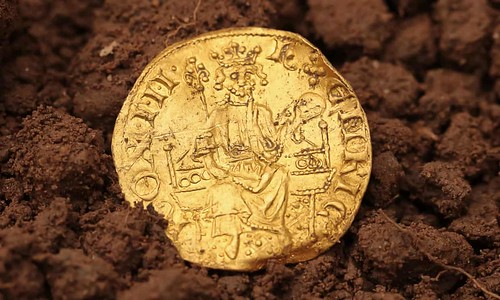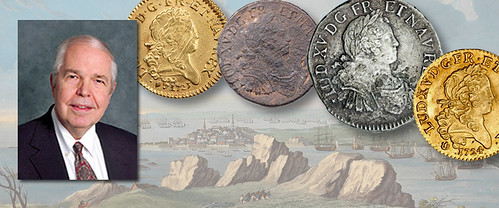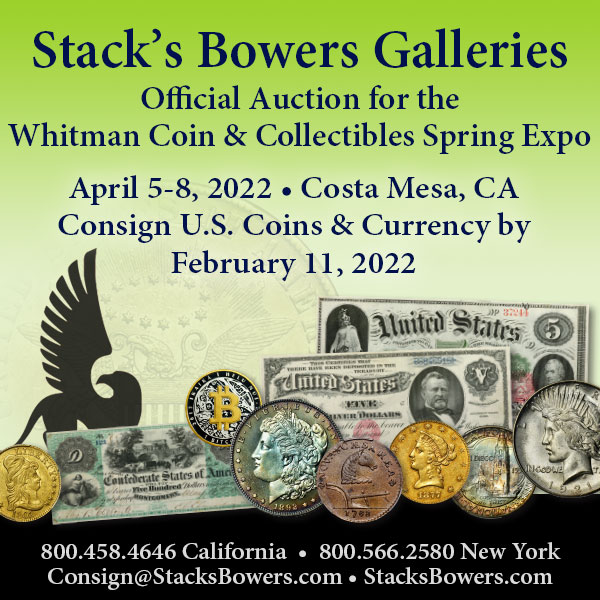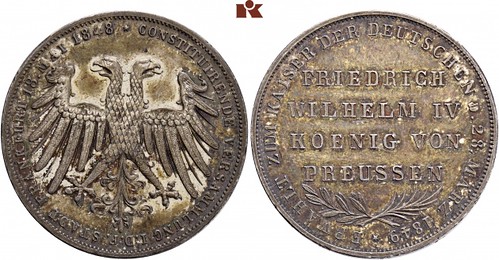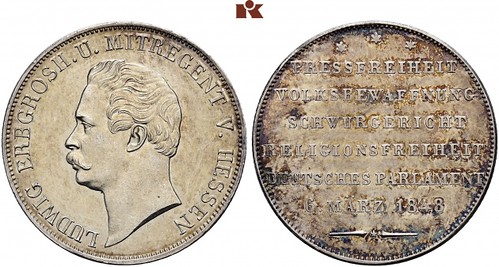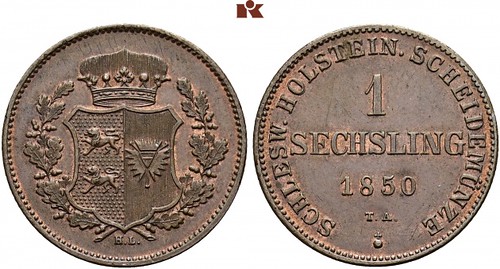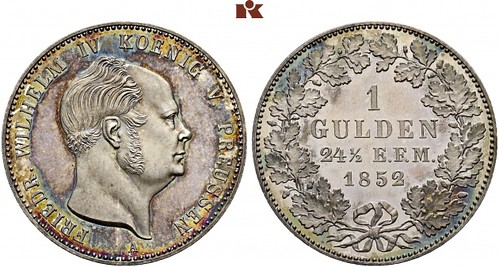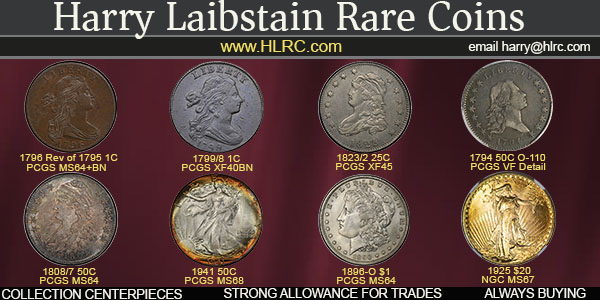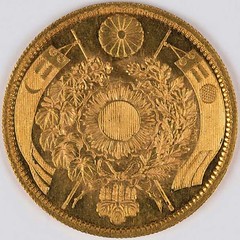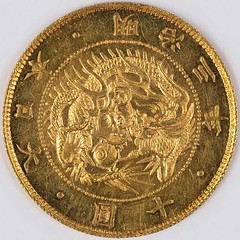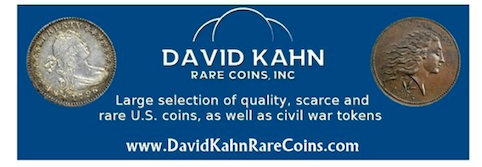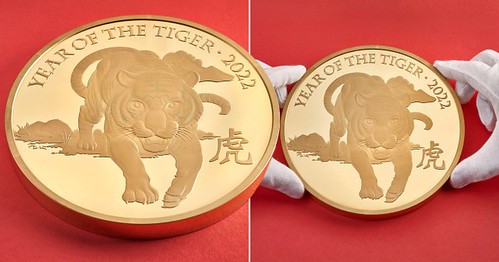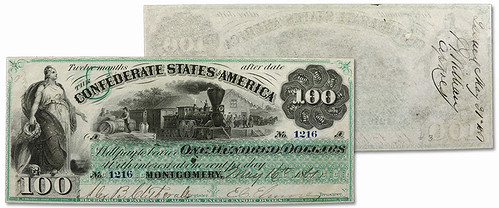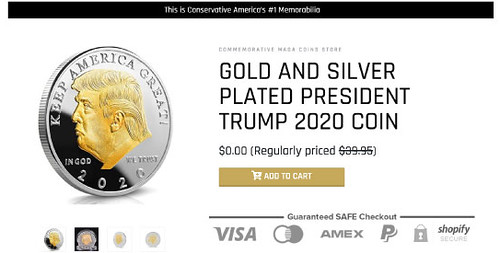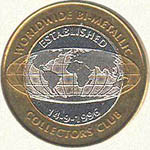
Visit our NBS Sponsors



About UsThe Numismatic Bibliomania Society is a non-profit association devoted to the study and enjoyment of numismatic literature. For more information please see our web site at coinbooks.org SubscriptionsThose wishing to become new E-Sylum subscribers (or wishing to Unsubscribe) can go to the following web page link MembershipThere is a membership application available on the web site Membership Application To join, print the application and return it with your check to the address printed on the application. Print/Digital membership is $40 to addresses in the U.S., and $60 elsewhere. A digital-only membership is available for $25. For those without web access, write to: Charles Heck, Treasurer AsylumFor Asylum mailing address changes and other membership questions, contact Chuck at this email address: treasurer@coinbooks.org SubmissionsTo submit items for publication in The E-Sylum, write to the Editor at this address: whomren@gmail.com BUY THE BOOK BEFORE THE COINSale CalendarWatch here for updates! |
- WAYNE'S WORDS: THE E-SYLUM JANUARY 30, 2022
- NBS BIBLIOTALK PODCAST WITH COLE HENDRICKSON
- NEW BOOK: BIBLE LORE AND THE ETERNAL FLAME
- NEW BOOK: MEXICO CITY COINAGE VARIETY GUIDE
- NEW BOOK: FOUR MAINZ ENGRAVERS
- PERIODICAL: COLONIAL LATIN AMERICAN REVIEW
- C4 AUCTION SALE CATALOGS ON NEWMAN PORTAL
- U.S. MINT REPORTS WANTED
- AUDIO: MIKE MARKOWITZ ON BYZANTINE COINS
- AN OPA RATION TOKEN HOLDER
- PRINTING BLOCKS FOR COLONIAL AMERICAN COINS
- NOTES FROM E-SYLUM READERS: JANUARY 30, 2022
- MEDIALIA GALLERY CLOSING
- LEEDS MUSEUM EXHIBIT ON EVOLUTION OF MONEY
- MONEY ZOO: ANIMALS IN THE HISTORY OF MONEY
- VOCABULARY TERM: HIGH POINT
- DON EVERHART'S CAREER IN COINS, PART 1
- MORE ON DESIGNING THE MAYA ANGELOU QUARTER
- BRITISH STANDARD CATALOG PLATE COINS
- NUMISMATIC AUCTIONS SALE 66 SELECTIONS
- THE TCNC PROMINENCE VI SALE
- GADOURY ANNOUNCES FERNAND DAVID SALE
- MORE ON FINDING THE HENRY III GOLD PENNY
- COINS OF THE LE CHAMEAU
- COINS OF GERMANY'S 1849 FALSE START
- JAPANESE MEIJI PATTERN COIN DISCOVERED
- ROYAL MINT YEAR OF THE TIGER GOLD COIN
- HIGH GRADE CONFEDERATE MONTGOMERY NOTE
- COIN COLLECTING MAKING A COMEBACK
- HOW TRUMP COINS BECAME INTERNET SENSATION
- LOOSE CHANGE: JANUARY 30, 2022
- FEATURED WEB SITE: WORLDWIDE BI-METALLIC COLLECTORS CLUB
Click here to read the thin version on the web
Click here to subscribe
Click here to access the complete archive
To comment or submit articles, reply to whomren@gmail.com
Content presented in The E-Sylum is not necessarily researched or independently fact-checked, and views expressed do not necessarily represent those of the Numismatic Bibliomania Society.
WAYNE'S WORDS: THE E-SYLUM JANUARY 30, 2022
 New subscribers this week include:
Daniel McKone.
Welcome aboard! We now have 6,740 subscribers.
New subscribers this week include:
Daniel McKone.
Welcome aboard! We now have 6,740 subscribers.
Thank you for reading The E-Sylum. If you enjoy it, please send me the email addresses of friends you think may enjoy it as well and I'll send them a subscription. Contact me at whomren@gmail.com anytime regarding your subscription, or questions, comments or suggestions about our content.
This week we open with a new NBS podcast, three new books, a special periodical issue, updates from the Newman Numismatic Portal, and more.
Other topics this week include Bible coins, the mining and minting history of the Americas, Byzantine coins, OPA ration tokens, the Money Zoo, Mashiko, Don Everhart, auction previews, the Royal Mint year of the Tiger gold coin, and Trump coins and the fake account that shared a fake story on a fake Fox News website about a fake tweet by a fake Elon Musk.
To learn more about Civil War tokens, coinage of the Mexico City Mint, the Fernand David collection of American coins, Medialia Rack and Hamper Gallery, shears for clipping half crowns, the Feuchtwanger Three Cent piece, Canadian paper money, coin collecting's comeback, the Numismatic Tooth Fairy, and the woman who ate $550, read on. Have a great week, everyone!
Wayne Homren
Editor, The E-Sylum
NBS BIBLIOTALK PODCAST WITH COLE HENDRICKSON
The latest episode of the Numismatic Bibliomania Society podcast is now available for listening. It's on the NBS web site but also available elsewhere. Vice-President/Secretary Len Augsburger provided this report. -Editor
NBS Podcast Civil War Tokens, with Cole Hendrickson
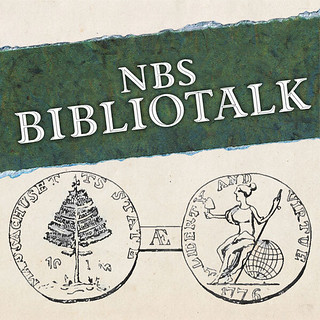 The latest episode of the NBS Bibliotalk podcast,
The latest episode of the NBS Bibliotalk podcast, Civil War Tokens, with Cole Hendrickson,
is now available on the NBS website and other popular podcasting platforms such as Buzzsprout. In this episode, Cole Hendrickson talks about literature related to Civil War tokens, and in the process provides a useful overview of the field itself.
Cole is studying history at Arizona State and covers the landscape from Civil War patriotic to store tokens, including the perennial favorite GOOD FOR A SCENT token. The NBS podcast is produced every other month by Lianna Spurrier of Numismatic Marketing.
Link to Civil War Tokens, with Cole Hendrickson
on the NBS podcast page:
https://www.coinbooks.org/resources/podcast.html
NEW BOOK: BIBLE LORE AND THE ETERNAL FLAME
Whitman is publishing a new book by Ken Bressett on Biblical coins! Here's the press release. -Editor
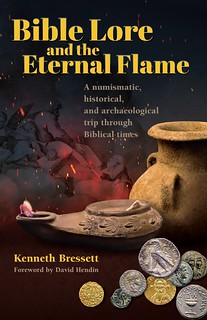 Whitman Publishing announces the upcoming release of Bible Lore and
the Eternal Flame, by Kenneth Bressett. The new 224-page hardcover book will debut in March 2022, available from booksellers and hobby shops nationwide. In the meantime, it can be preordered at
www.Whitman.com and online bookstores.
Whitman Publishing announces the upcoming release of Bible Lore and
the Eternal Flame, by Kenneth Bressett. The new 224-page hardcover book will debut in March 2022, available from booksellers and hobby shops nationwide. In the meantime, it can be preordered at
www.Whitman.com and online bookstores.
Author Ken Bressett is well known to the collecting community as an expert on American coinage. Active in numismatics since the 1940s, he has written many articles and is author or editor of more than two dozen related books.
Although he is most famous as Editor Emeritus of the Guide Book of United States Coins (popularly called the Red Book
), Bressett is also a longtime student of the ancient world. He is editor of the Handbook of Ancient Greek and Roman Coins (1994), a popular reference that builds on the work of Zander H. Klawans. His Money of the Bible was first published in 2005 and subsequently updated in new editions. And his book Milestone Coins: A Pageant of the World's Most Significant and Popular Money has chapters on the ancient world and Biblical currency.
In Bible Lore and the Eternal Flame, Bressett creates an archaeological roadmap of the Old and New Testaments, from the earliest cuneiform writing to pottery, oil lamps, glass—and, of course, money. The Roman denarius, the Tyrian shekel, the first coin to feature an image of Jesus, and hundreds of other coins help provide a glimpse into daily life and trade, starting with ancient Israel and continuing through Jesus's lifetime to the early years of the Christian church.
David Hendin, First Vice President and Adjunct Curator of the American Numismatic Society, who wrote the book's foreword, describes Bressett as a teacher and a motivator
who links the modern reader to antiquity through the study of coins and other artifacts.
He calls Bible Lore and the Eternal Flame a fun and fascinating book.
Money has long been an important part of human civilization,
said Whitman publisher Dennis Tucker. The Bible tells the parable of the widow's mite, and stories of the coin in the fish's mouth, the thirty pieces of silver paid to Judas, and other ancient money. By studying the coins and artifacts still with us, thousands of years later, Ken Bressett guides us to a deeper understanding of ancient civilizations.
Bible Lore and the Eternal Flame was reviewed by the Rev'd Lawrence C. Brennan, Censor Liborum of the Roman Catholic Church. Brennan certified the manuscript with Nihil Obstat, the Church's official declaration that a book is unobjectionable on doctrinal or moral grounds. It was then granted Imprimatur, the Church's formal approval for publication, by the Most Rev'd James R. Golka, Bishop of Colorado Springs.
The full-color, hardcover book retails for $19.95.
Bible Lore and the Eternal Flame, first edition.
By Kenneth Bressett; foreword by David Hendin.
ISBN 0794849768. Hardcover, 6 x 9 inches, 224 pages, full color.
Retail $19.95 U.S.
NEW BOOK: MEXICO CITY COINAGE VARIETY GUIDE
Author Brad Yonaka shared this press release for his new book on Mexico City Mint coinage. Thanks! -Editor
A Variety Guide to the Silver and Copper Coinage of the Mexico City Mint 1732-1771
by Brad Yonaka
ISBN-13: 978-0-9986825-4-9
322 pp. | 8 ½ x 11 inch hardbound with dust cover, black & white interior
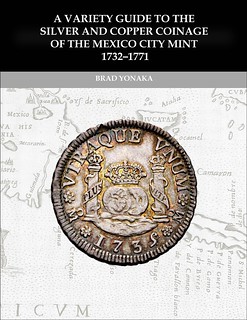 This book, self-published in late 2021 but delayed in printing, is dedicated exclusively to all
denominations and dates of milled pillar coinage of this mint, in as much detail as has ever
been presented. It includes all the information from my 2017 title A Variety Guide to the
Fractional Pillar Coinage of Mexico City 1732-1771, with a significantly larger database (now
over 12,000 coins), and now includes the 8 Reales denomination. A great deal of fragmentary
historical research is synthesized to present a current accounting of types, with rarity and
estimated prices. Included are descriptions of 573 dates and varieties, with close to 600 photos.
This guide also brings together, in one volume, many facets of both the history leading up to
the first strikes, and the details behind the major design changes seen during the forty years of
issue.
This book, self-published in late 2021 but delayed in printing, is dedicated exclusively to all
denominations and dates of milled pillar coinage of this mint, in as much detail as has ever
been presented. It includes all the information from my 2017 title A Variety Guide to the
Fractional Pillar Coinage of Mexico City 1732-1771, with a significantly larger database (now
over 12,000 coins), and now includes the 8 Reales denomination. A great deal of fragmentary
historical research is synthesized to present a current accounting of types, with rarity and
estimated prices. Included are descriptions of 573 dates and varieties, with close to 600 photos.
This guide also brings together, in one volume, many facets of both the history leading up to
the first strikes, and the details behind the major design changes seen during the forty years of
issue.
Cost: $125 + $5 shipping (US domestic, for overseas please inquire), payable by three methods:
1) personal check to:
ACI
PO Box 41515
Long Beach, CA
2) Paypal payment to acanthite@live.com. If using this method, please add an extra $5 for Paypal fees.
3) Venmo payment to @Brad-Yonaka. No extra fee for this method.
To read the earlier E-Sylum articles, see:
NEW BOOK: MEXICO CITY FRACTIONAL PILLAR COINAGE
(https://www.coinbooks.org/v20/esylum_v20n26a04.html)
NEW BOOK: THE PILLAR COINAGE
(https://www.coinbooks.org/v21/esylum_v21n33a06.html)
NEW BOOK: FOUR MAINZ ENGRAVERS
Battenberg Verlag has published a new about four key engravers/medalists from the city of Mainz, Germany. Here's a Google-translated description from the publisher's website. -Editor
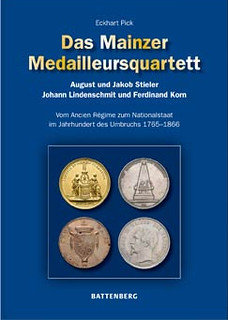 The Mainz Medalist Quartet
The Mainz Medalist Quartet
August and Jakob Stieler, Johann Lindenschmit and Ferdinand Korn
One knows mint masters, Wardeine, but usually not the medalists, the designers of the coins and medals. Four medalists come from Mainz and have also worked for numerous mints. Her other stations were Wiesbaden, Darmstadt, Koblenz, Limburg, Arolsen and Bern. While August and Jakob Stieler, father and son, as well as Johann Lindenschmit came from well-known artistic families, Ferdinand Korn became the most famous mint director and medalist. The wildest rumors were circulating about him.
ISBN: 978-3-86646-218-2
Edition: 1st edition 2022
Dimensions: 17 x 24 cm
Type of figures: colored throughout
Type of cover: hard cover
Number of pages: approx. 128
EUR 24.90 VAT included.
For more information, or to order, see:
Das Mainzer Medailleursquartett
(https://www.battenberg-gietl.de/produkt/das-mainzer-medailleursquartett)
PERIODICAL: COLONIAL LATIN AMERICAN REVIEW
Mitch Fraas passed along a link to a new issue of the Colonial Latin American Review focusing on the mining and minting history of the Americas. Thanks! Here's an excerpt from the Introduction. -Editor
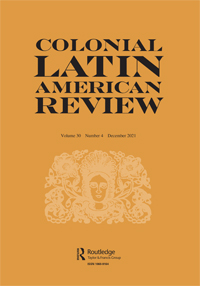 This special issue spans the sixteenth to nineteenth centuries to reconsider the cultural and economic impact of mining and coin production in the early Americas. The geographic scope of the articles—the Spanish viceroyalties of New Spain and Peru and the British Caribbean—underscores the hemispheric circulation of mining and minting knowledge and the movement of coins. The authors primarily present regional case studies but taken together these essays present a trans-imperial perspective on the significance of mining and minting in the Americas, specifically silver, the most heavily trafficked precious metal in the early modern period. This hemispheric scope highlights similarities in the ways Indigenous people, colonists, forced migrants, and others accorded cultural and economic value to silver at different moments of its life cycle. The broad reach prioritizes formerly ignored topics and perspectives, ranging from that of African-descended men who labored in the mint at Potosí, to those of women from India who made jewelry from their silver coin wages.
This special issue spans the sixteenth to nineteenth centuries to reconsider the cultural and economic impact of mining and coin production in the early Americas. The geographic scope of the articles—the Spanish viceroyalties of New Spain and Peru and the British Caribbean—underscores the hemispheric circulation of mining and minting knowledge and the movement of coins. The authors primarily present regional case studies but taken together these essays present a trans-imperial perspective on the significance of mining and minting in the Americas, specifically silver, the most heavily trafficked precious metal in the early modern period. This hemispheric scope highlights similarities in the ways Indigenous people, colonists, forced migrants, and others accorded cultural and economic value to silver at different moments of its life cycle. The broad reach prioritizes formerly ignored topics and perspectives, ranging from that of African-descended men who labored in the mint at Potosí, to those of women from India who made jewelry from their silver coin wages.
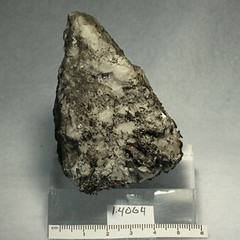 The articulation of a New Mining and Minting History as a subfield follows a historiographical tradition that names scholarly trends to crystalize their intellectual aims and analytical promise. Titling the issue ‘Recent research on silver mining and mints in the Americas' would imply that the articles simply pursue the topics and questions of a well-established body of scholarship. Mining and minting have indeed piqued scholars' interests since the earliest years of the field of Latin American history. Newer works on mining and minting, however, point to a twenty-first-century revival that has a different orientation than previous scholarship. The NMMH is actively producing new ways of thinking about the history of metals, which includes an emphasis on the ways historical actors mined and minted metals and the value and significance they placed on the same.
The articulation of a New Mining and Minting History as a subfield follows a historiographical tradition that names scholarly trends to crystalize their intellectual aims and analytical promise. Titling the issue ‘Recent research on silver mining and mints in the Americas' would imply that the articles simply pursue the topics and questions of a well-established body of scholarship. Mining and minting have indeed piqued scholars' interests since the earliest years of the field of Latin American history. Newer works on mining and minting, however, point to a twenty-first-century revival that has a different orientation than previous scholarship. The NMMH is actively producing new ways of thinking about the history of metals, which includes an emphasis on the ways historical actors mined and minted metals and the value and significance they placed on the same.
The terminology and conceptual framework of the NMMH are directly influenced by the recent work of scholars who have marked historiographical turns or subfields concerned with Native American history, including the New Mission History, the New Philology, and the New Conquest History (Jackson 1995; Restall 2003, 2012). Others eschew monikers, but have nonetheless gestured towards ‘new currents,' such as in Borderlands History (Levin Rojo and Radding 2019, 15). Scholars who have articulated the rise of these new schools and currents all emphasize the use of overlooked sources (like Indigenous-language manuscripts and non-written materials) to arrive at pioneering histories that center Indigenous peoples and their perspectives. The NMMH is a parallel cultural, linguistic, and material turn concerned with the diverse people who were engaged in connected enterprises: the making and holding of metal wealth.
The NMMH has four identifiable hallmarks. A summary reference to some previous key studies on mining and minting alongside new scholarship testifies to some of the ways that this historiographical turn has moved beyond traditional concerns. Studies in NMMH, primarily published in the last ten years, serve as foundational work for this growing subfield. Scholars writing NMMH cover a wide geographic scope and focus on a variety of elemental metals like mercury and lead. This special issue focuses on silver and copper and on Spanish and British America.
Here's the table of contents. -Editor
Introduction: a new mining and minting history for the Americas
Tatiana Seijas et al.
‘To search and claim': indigenous prospectors, silver mining, and legal practices in Spanish America, 1530–1600
Dana Velasco Murillo
Ingenios and ingenuity: rethinking Indigenous histories of silver in the colonial Andean mining industry
Allison Bigelow & Pablo Cruz
Suspicious possession: policing silver and making race in colonial Potosí
James Almeida
Bits, shillings, and dollars: slavery, indenture, and circulating silver in British Guiana, 1800s–1900s
Louise Moschetta
In search of a decent coin: the value of small change in Bourbon Spanish America
Andrew Konove
Afterword: mining, minting, and money – from within and from below
Daviken Studnicki-Gizbert
For more information, or to order, see:
Colonial Latin American Review, Volume 30, Issue 4 (2021)
(https://www.tandfonline.com/toc/ccla20/current)
C4 AUCTION SALE CATALOGS ON NEWMAN PORTAL
The latest additions to the Newman Numismatic Portal are auction sale catalogs from the Colonial Coin Collectors Club. Project Coordinator Len Augsburger provided the following report. -Editor
C4 Auction Sale Catalogs on Newman Portal
The Colonial Coin Collectors Club (C4) auction sales were launched in 1995 in conjunction with the first C4 convention. The inaugural sale was anchored by the John M. Griffee consignment of New Jersey and St. Patrick coppers, with sale coordination by Chris McCawley and Bob Grellman. Chief catalogers were Tom Rinaldo and John Kraljevich. C4 has continued to present auction sales annually during each convention, which is held at the fall Whitman Expo in Baltimore, after moving from the Bay State show c. 2010. Current sales are produced by Stack's Bowers in coordination with the C4 group. The most recent sale featured consignments from Norm Peters (New Jersey and Connecticut coppers) and Pierre Fricke (Fugio coppers). Chriss Hoffman recently forwarded a number of prices realized lists to fill out the NNP run of C4 auction sale catalogs.
Image: Lot 2001 from the November 2021 C4 sale, Noe 1-A Willow Tree Shilling (realized $36,000)
Link to C4 Auction Sale Catalogs on Newman Portal:
https://nnp.wustl.edu/library/auctioncompanydetail/512193
For more information on the Colonial Coin Collectors Club, see:
colonialcoins.org
U.S. MINT REPORTS WANTED
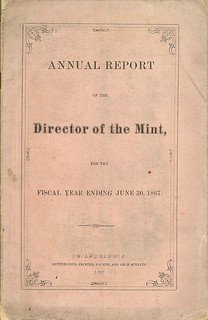
The Newman Portal has an amazing cache of content, but there are always holes needing to be filled. This week I helped Len locate a copy of the 1894 Mint report, which was incorporated into the Secretary of the Treasury report for that year. Other Mint Reports missing from NNP include the years 1958, 1959, 1973, 1980, 1981, 1985-1987, 1989, 1991-1994, 1997, 1999, and 2000. Can anyone help? Do you have any of these in your library, or know where a copy can be found online? Thanks. -Editor
To access U.S. Mint Reports on the Newman Portal, see:
U.S. Mint Reports
(https://nnp.wustl.edu/library/publisherdetail/51)
AUDIO: MIKE MARKOWITZ ON BYZANTINE COINS
A recent CoinWeek Podcast features Mike Markowitz discussing Byzantine coins. Give it a listen! He knows the subject well. -Editor
This week on the CoinWeek Podcast, Mike Markowitz sits down to discuss his favorite area of ancient coin collecting: Byzantine coins. The Byzantine Empire stood for more than a thousand years, officially ending on May 29, 1453, when the city of Constantinople fell to the Ottomans. Historians call it the Byzantine
Empire, but they called themselves Romans
.
If you've ever wanted to learn about this huge area of ancient numismatics but haven't known where to start, then this is the podcast for you. Mike gives a complete overview of this Eastern Roman coinage, from the solidus to the stavraton.
To listen to podcast, see:
CoinWeek Podcast #165: Mike Markowitz on Byzantine Coins
(https://coinweek.com/coinweek-podcast/coinweek-podcast-165-mike-markowitz-on-byzantine-coins/)
AN OPA RATION TOKEN HOLDER
In earlier issues we've discussed all manner of coin collecting boards with the help of author and researcher Dave Lange. Last week's MPC Gram (Series 23 No. 2508) featured a note from Roger Urce discussing one we hadn't seen before - a Capitol Plastics style holder for WWII U.S. ration tokens issued by the Office of Price Administration (OPA). With permission, we're republishing it here. Thanks! See the earlier E-Sylum article for other types of OPA token boards. -Editor
Roger Urce writes:
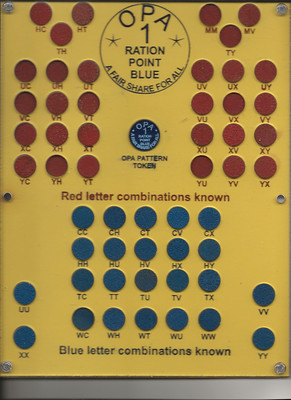 "While completing my set of OPA ration tokens, I stored them in 2x2 cardboard holders and once the set was complete, the 2x2 went into a box a put away with the other 2x2 boxes.
"While completing my set of OPA ration tokens, I stored them in 2x2 cardboard holders and once the set was complete, the 2x2 went into a box a put away with the other 2x2 boxes.
Last week I received an email from Doug Bell asking if I had any MPC which might fit into his collection of notes in the worst possible condition; I was able to provide a few fractionals. When Doug asked if I collected OPA tokens and if I might be interested in a plastic holder which he had developed and manufactured to store/display them. I was interested and now my OPA collection is housed in the custom-built holder you see pictured.
The 8 1/2x11 size is perfect for storage, makes for an attractive display and the sturdy plastic construction keeps the tokens protected. The board is held together with plastic screws for easy assembly, comes with five background colors, and for me, is the best way to house my OPA token collection. I should also mention the OPA Pattern token is a laser engraved reproduction.
If you have an OPA Token collection, I think Doug's board is the best way to store them."
Doug is selling his remaining stock on eBay at:
OPA Tokens Board Custom Design
(https://www.ebay.com/itm/184940607343)
MPC Gram is an email newsletter for collectors of Military Payment Certificates and other military numismatica. Click here to subscribe . -Editor
To read the earlier E-Sylum article, see:
COIN BOARD NEWS FALL 2017 ISSUE PUBLISHED
(https://www.coinbooks.org/v20/esylum_v20n39a15.html)
PRINTING BLOCKS FOR COLONIAL AMERICAN COINS
Jeff Rock submitted this item about his interesting collection of printing blocks picturing U.S. colonial coins. Thanks! -Editor
One of the cool "weird" things I have in my collection is a selection of printing blocks for colonial American coins - and since the image shared by Jesse Kraft was for such a piece, it piqued my interest. I have perhaps three dozen blocks, and they are of varying ages and construction. These are the subject of an article I someday will get around to writing, but doesn't hurt to share some of them here and ask for assistance too!
The earliest seem to be a lead alloy that was nailed onto wooden blocks - these seem to be 1850s-1860s in nature. Above are three of these, and the next image shows them flipped, to what they would look like on the printed page. These were engraved by hand and are something of works of art in their own right! I had thought these three were used in one of Charles Bushnell's books since the top one in this photo is his signature, and the bottom two are Mott and Talbot, Alum & Lee tokens which were the subjects of his 1859 and 1860 books - but neither of those featured a printed signature, and while the token images look correct, the ones in the books have obverse and reverse spaced much further apart, with a line between them. There is a Bushnell signature in his 1864 Crumbs for Antiquarians, and while the signature is the same, the flourishment is different. So there is a mystery here to solve! This style of blocks would have been fairly expensive to make and would have been used and reused - some of Bushnell's engravings can be found directly in Crosby and elsewhere. Indeed, I've used them for my own colonial price lists for the last 30 years (though in xerox or digital form, not printed from the original blocks!).
Here is a copper block, also engraved by hand, but not mounted to a piece of wood - the copper was sufficiently heavy enough to not move around in the printing press (and is indeed heavier than the lead ones mounted on wood). This block matches the image used in Crosby exactly and was likely made specifically for that book. These seem to date a little later than the above style, maybe 1870-1890s.
And here is one on copper and mounted on wood, but more modern in manufacture. A close look at the copper image shows that it was screened and not engraved. This would be 1940s - 1970s or so. I've been told (but have not verified) that this style with screening would be used more for magazines and newspaper printing, and not for books that needed higher quality images.
The blocks that Jesse shared look to be somewhere between the second and third types here - at a guess, early 20th century, on up to 1930s. The Continental dollar one doesn't appear screened, so this era seems correct for it. An article on "early coins" in some magazine or newspaper may be where they were used - but the images don't ring a bell for me, and a look at the handful of non-numismatic magazines that featured articles on coins in my library didn't yield a match.
Fun stuff!
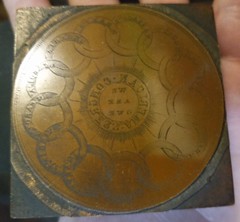 To read earlier E-Sylum articles, see:
To read earlier E-Sylum articles, see:
KING OF SIAM SET PRINTING PLATE BOOK SOUGHT
(https://www.coinbooks.org/esylum_v16n47a14.html)
MORE WHITMAN COIN IMAGE PRINTING PLATES
(https://www.coinbooks.org/esylum_v17n06a15.html)
QUERY: COIN PRINTING BLOCKS
(https://www.coinbooks.org/v25/esylum_v25n03a15.html)
NOTES FROM E-SYLUM READERS: JANUARY 23, 2022 : Whitman Coin Printing Blocks
(https://www.coinbooks.org/v25/esylum_v25n04a15.html)
WAYNE'S NUMISMATIC DIARY: JANUARY 23, 2022 : Friedberg Book Printing Block
(https://www.coinbooks.org/v25/esylum_v25n04a30.html)
NOTES FROM E-SYLUM READERS: JANUARY 30, 2022
J. Schulman Sales of Fernand David American Collection
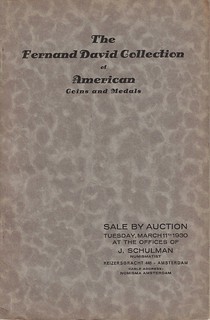 Scott Miller writes:
Scott Miller writes:
"I was pleased to see the notice concerning the upcoming Fernand David sale. Until now, there was virtually nothing known about him. There were at least two previous J. Schulman sales with material from his collection. The first, held on March 11, 1930, consisted of American coins and medals, and included a number of rarities, such as a cased proof set of 1843, half cent through gold eagle (lot 112), and a New Yorke in America token (lot 63).
According to the catalogue, the second part, "will include the European and Oriental series with the exception of the Ancients and the French". That appears to have taken place on June 8, 1931; a copy was listed in Kolbe's "The Numismatic Bookseller", Vol. 3, Nos. 5 and 6, Spring 1987."
Scott kindly attached a scan of the cover of the catalogue. Thanks! -Editor
To read the earlier E-Sylum article, see:
FERNAND DAVID (1861-1927)
(https://www.coinbooks.org/v25/esylum_v25n04a19.html)
Query: Mystery Rat Man Medal
Pete Smith writes:
"A member of my coin club asked for help in identifying this medal. It appears to be copper, 30mm, with no inscription. Can any E-Sylum reader explain who made this and what it represents?"
Beats me. Ideas, readers? -Editor
THE BOOK BAZARRE
MEDIALIA GALLERY CLOSING
Peter Van Alfen of the American Numismatic Society published an ANS Pocket Change blog article on his recent visit to Mashiko's Medialia Rack and Hamper Gallery, which "has for nearly three decades served as a forum for contemporary medallic art, perhaps the only such gallery anywhere in the world." The gallery is closing as artist Mashiko semi-retires. -Editor
Founded in 1993 by Mashiko, the 2019 winner of the ANS's prestigious J. Sanford Saltus Award for Achievement in Medallic Art, Medialia has functioned not just as a gallery, but as an important meeting place for artists, connoisseurs, students, and those curious in hand-held sculpture generally. Since its inception Medialia has hosted scores of exhibits featuring the work of living artists, including current Saltus Award winners, as well as thematic retrospective exhibits, often shown concurrently, that have explored the long history of medallic art, its various guises and purposes, thus offering viewers the means for understanding where medallic art has come from and where it might be going. Like all contemporary art, this can sometimes be a contentious issue, but Medialia has always provided a cheerful, warm, and engaging environment for serious discussion.
Now in her 80s, Mashiko made the decision last year to close Medialia and to seek semi-retirement across the Hudson River in Jersey City. In December of last year I had the bitter-sweet experience of spending part of an afternoon with Mashiko viewing her final exhibits at Medialia, much of it fittingly of her own work.
In the smaller of the three exhibit spaces, she had mounted, with loans from local collectors, an exhibit entitled American Medalists in Paris
, which focused on the works of famed American sculptors like James Fraser and Victor David Brenner, who had spent time in the ateliers of Paris in the late 19th and early 20th centuries honing their sculptural skills. While it was certainly a pleasure to see a number of familiar pieces and some rarities in the cases, it was in the other two exhibit spaces which featured a retrospective of Mashiko's own work where the real joy was to be found.
As the curator primarily responsible for the ANS's medallic art cabinet, I have long had the pleasure of interacting with Mashiko's medallic work, but have only had the chance to appreciate it piecemeal, viewing or handling individual pieces one-by-one. To see her complete medallic ouvre displayed across several cases was an exceptionally rare treat, giving a fuller sense of how she has approached this smaller format over time and how her approach to it has developed. What was most fascinating, however, was to see how her medallic art relates to her much larger sculptures, exhibited in the next room, which were done at an earlier stage in her career. These wondrous, evocative, and even confounding pieces in wood appear to stand somewhere between man-made and naturally occurring, a sense due to Mashiko's ability to engage with the scale and nature of the raw material itself, in this case, massive timbers and balks. Not on display were her works in stone, a medium that was a centerpiece of her career for many years and one that she taught to scores of students. An innate understanding of the raw material is one of Mashiko's gifts, which translates as well into her work in bronze and other metals, underscoring again the reasons she was given the Saltus Award.
As I signed the guest book for the last time, the last person to do so, and said goodbye, I was struck by the many happy hours I had spent at Medialia over the years and what an important role the gallery has served within our numismatic community and also within the larger contemporary art scene here in the City. All things must pass, of course, but this passing was one I wish could have waited a bit longer.
I greatly enjoyed my last visit to Medialia. It was a wonderful, welcoming space for the study of medallic art. Life marches on, and we wish Mashiko well in her new location. New York City won't be quite the same without her and Medalia. -Editor
To read the complete article, see:
MEDIALIA RACK AND HAMPER GALLERY: A SAD FAREWELL
(http://numismatics.org/pocketchange/medialia/)
To read earlier E-Sylum articles, see:
MEDIALIA EXHIBITS HIGHLIGHT MODERN MEDALS
(https://www.coinbooks.org/esylum_v19n29a15.html)
WAYNE'S NUMISMATIC DIARY: APRIL 21, 2019 : Medialia Gallery
(https://www.coinbooks.org/v22/esylum_v22n16a25.html)
MEDIALIA GALLERY VISIT
(https://www.coinbooks.org/v22/esylum_v22n16a26.html)
2019 SALTUS AWARD TO MASHIKO
(https://www.coinbooks.org/v22/esylum_v22n46a14.html)
LEEDS MUSEUM EXHIBIT ON EVOLUTION OF MONEY
This BBC News article features the Leeds Museum's exhibit on the evolution of money. The exhibit runs through February 11. -Editor
Kat Baxter, curator of the exhibition at Leeds Museum looking at the evolution of money, said: "The Nazis counterfeited Bank of England notes from branches in Bristol, Birmingham, Leeds, Liverpool and Manchester.
"Banknotes had their own serial numbers. The Leeds branch serial number started with 138Vm and this was used on the fake notes."
Long before the Germans' bid to flood the country with fake bills, counterfeiting was already a common scourge on society, with the exhibition exploring the theme of fakes and forgeries.
West Yorkshire was a known hotspot for the crime, with goldsmith Arthur Mangey, who had a workshop in Briggate, hanged at York gallows in 1669 for coin-clipping.
He was convicted on the evidence of George Norcross, a cobbler, who claimed to have worked alongside him.
Norcross said they had "great shears for clipping half crowns" and another pair "for clipping shillings and sixpences".
The exhibition also highlights how, in the days before the Bank of England had exclusive note-issuing powers, the city of Leeds printed its own cash.
The notes, which were in circulation in the 1800s, featured the branding of the city along with the names of defunct institutions like The Leeds Bank and Leeds Union Bank.
Ms Baxter said such a practice was reserved for the wealthy elite and in the early days of commercial banking the notes would have been seen as a more reliable form of currency.
Leeds banknotes are not the only unusual form of currency from around the world to be displayed at the city's museum.
Giant Swedish plate money, used in the 17th Century, illustrates that money really does come in all shapes and sizes.
The plates were rectangular pieces of copper, in some cases weighing several kilograms, making them difficult to use in everyday trading.
The Swedish plate money features along with a one hundred trillion dollar bill issued by the Reserve Bank of Zimbabwe, which, despite its eye-watering amount, was worth very little because it was printed during a period of hyperinflation.
Other subjects covered in the exhibition include how money has been used in play, with a selection of cash-themed board games featuring the not-so-successful seller, Trump: The Game as well as the somewhat more profitable Monopoly, which used to be produced by Waddingtons in Leeds.
To read the complete article, see:
Leeds link to Nazi bogus banknotes plot explored in new exhibition
(https://www.bbc.com/news/uk-england-leeds-60155106)
MONEY ZOO: ANIMALS IN THE HISTORY OF MONEY
The Nickle Numismatic Collection at the University of Calgary has mounted an exhibit on the historical use of animals as money and animals portrayed on money itself. It runs until May 27, 2022. -Editor
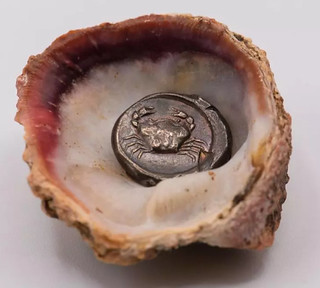 The new exhibition at Nickle Galleries, Money Zoo: Fantastic Beasts in the History of Money, highlights the importance of animals in the human world. Our link with natural creatures is timeless and enduring.
The new exhibition at Nickle Galleries, Money Zoo: Fantastic Beasts in the History of Money, highlights the importance of animals in the human world. Our link with natural creatures is timeless and enduring.
What is this intricate relationship, the sacred connection between humans and animals? What kind of evidence do we have from money and trade? Trying to answer these questions, the exhibition highlights the examples of the historical use of animals as money as well as animals portrayed on our past and present currencies.
The use of money today is so ubiquitous that we seldom give thought to why it functions the way it does, how it came to be, or what we do without it. It often comes as a surprise when we learn that trade items and diverse forms of money have been used as currency for thousands of years prior to the invention of coinage, or even simultaneous with it.
Hundreds of different items made from animals and other life forms have been used to accommodate the diverse needs of everyday commerce and trade by different societies throughout history. Some defy credulity, while others have stood the test of time.
For example, during the period of Canadian fur trade, Indigenous people brought animal pelts to Hudson's Bay Company posts to trade for European manufactured goods,
says Marina Fischer, the exhibition curator. Prized for their water-repellent fur, beaver pelts traded at a premium, and by 1748 they became the ‘Standard of Trade.' By the mid-19th century, the beaver was close to extinction.
Fortunately, the demand for beaver pelts all but disappeared after hat-makers found silk fabric to be more economical and just as stylish. The beaver was given an official status as an emblem of Canada on March 24, 1975. Canadian animal coins, beaver pelt, Arctic white fox fur and trade tokens can be found on display.
Another fascinating case is a shark tooth sword from 30 pairs of shark teeth from Solomon Islands. Used as commodity money and a trade item in the area, today the shark teeth can serve as an ecological snapshot of the reefs that lined the islands more than a century ago, reflecting the historical biodiversity in the reefs that has since been lost due to environmental degradation.
Sword teeth from different shark species, some undocumented within thousands of miles of the islands, allow scientists to study shadow biodiversity
— the life of an earlier ecosystem before humans played a role in these sharks' local eradication. These and similar artifacts serve as a valuable time capsule of the ecosystems that predates modern scientific studies.
Other exhibition themes include birds, turtles, horses, lions, bulls, elephants, bees, shells, a narwhal tusk and even a Papua New Guinea necklace made of beetle legs. An elephant coin by Julius Caesar, eagle coins by Brutus and Cleopatra VII, Celtic horse coin by Queen Boudicca, mother-of-pearl gaming tokens that belonged to one of King George III's sons, bird feathers, the first European turtle coins, Indigenous shell necklaces, the first world's coinage with a roaring lion, whale teeth, and the very last pagan coin of the Roman Empire depicting an Egyptian sacred bull are just a few captivating examples on display.
To read the complete article, see:
Money Zoo exhibition explores historical use of animals as money and animals portrayed on money
(https://ucalgary.ca/news/money-zoo-exhibition-explores-historical-use-animals-money-and-animals-portrayed-money)
VOCABULARY TERM: HIGH POINT
Here's another entry from Dick Johnson's Encyclopedia of Coin and Medal Terminology. -Editor
High Point. The point of highest relief on a numismatic or medallic item. The high point – often the nose on a portrait – is formed from the lowest point of the die cavity. Examining the high point in the press room during striking is necessary for both medals and coins; it is the critical point which determines whether a medal is fully struck up in multiple striking, or for a coin during set up. High points are examined in the finishing department as well; as medals are oxidized and relieved they are examined to insure the high point is not overly buffed.
High points are the first to wear and the most vulnerable to damage, thus they are an important factor of condition. A collector or numismatist will check first an item's high points to determine wear or condition. If high points are particularly worn they are sometimes designated contact marks. Also there are special high points – called support points. These are usually three in number, usually located on the reverse and sometimes hidden in the design purposely by the designer. Support points, as expected, support the item as it rests on a flat surface and somewhat prevents wear to the remainder of the design.
To read the complete entry on the Newman Numismatic Portal, see:
High Point
(https://nnp.wustl.edu/library/dictionarydetail/516050)
DON EVERHART'S CAREER IN COINS, PART 1
With permission, we're republishing excerpts of former U.S. Mint Sculptor-Engraver Don Everhart series published by CoinWeek beginning in April 2018. -Editor
Fresh out of college in 1973, I made a decision that would change the course of my life forever – and I didn't even know it at the time!
Back then I was more concerned about staying alive than deciding what my career path would be. I had a Bachelors Degree in Fine Arts Painting, and my vague plan was to be an illustrator (doing album covers, I hoped).
I had taken a job as a paste-up artist at a ticket and label manufacturing company in Northeast Philadelphia and had moved five times in the past year, so things were a little unsettled, to say the least.
I had higher aspirations than being a paste-up artist, however, and one day decided to play hooky and take my student portfolio to the gallery district on South Street to see if I could get a one-man show
.
The first gallery I walked into was owned by a husband-and-wife team. Rita reviewed my portfolio and kindly informed me that there were no openings at the moment. She did, however, inform me that she also worked at a company in the suburbs of Philly and they were looking for an artist to do paste-up for their advertising plan–basically the same thing I was doing at the label company. I was enticed by the possible $1,000 increase in my annual salary and jumped at the chance because, even though paste up was what I was already doing, in those days $1,000 was a lot of money for a young, inexperienced artist. Plus it got me out of the city.
So, I scheduled an interview at The Franklin Mint.
I was hired for the job and moved yet again to Media, Pennsylvania, about a 10-minute drive from my new place of employment.
Things were fine for about a year when the little, ever-present voice in my head said to me, This is not what you were meant to do with your life
. I wanted to do art, not production work for advertising. Now, I thought, time to move again.
During breaks and at lunchtime I would wander over to the sculpting department and look at the bas-reliefs that were being produced by the artists. The sculptors at The Franklin Mint were held in high regard. In the 1970s the Mint was rolling, its stock splitting every six months or so. I decided that while I had my foot in the door I should try out, as the mint was in need of more sculptors at the time.
At one point, there were 37 sculptors employed full time at The Franklin Mint!
My first tryout piece was The Charioteer of the Delphi
, a classic Greek figure. It took me three weeks to finish. After that, I was given yet another Greek masterpiece (a bust of Poseidon) and another three weeks. But both were accepted and I embarked on my third tryout piece, which was a scene with Gugliermo Marconi working on his radio telegraph system.
While working on this project I was hired as a Franklin Mint sculptor!
I learned the process that the other sculptors were using and would start a sculpt in plastilene, and when I was satisfied with the basics, I would make a plaster cast from it. This became the negative, which I worked on until I was satisfied with it. Then I would seal it and cast a positive plaster from that. I would add finishing touches and complete the sculpt at this point.
I remained at The Franklin Mint for the next five years, working as a sculptor and learning my new craft. I had never sculpted before in my life but the low relief was, for me, fairly easy to adapt to, as it is basically illustration with a bit of relief thrown in. If one has a good knowledge of drawing and a feel for volume, then one can adapt to the requirements of relief sculpture without too much of a problem. A lot of the artists were former illustrators and helped me in my progress to master the art. Once I learned the basics of relief sculpting I became very proficient at it, and was producing between 50 and 60 finished plasters a year. My three-week timetable to finish a sculpt became three days. I always consider my Franklin Mint years as my Master's Degree
.
I call bas-relief sculpting painting with light
. I position my light source above the plaster on a somewhat vertical drawing board. With this set up, using my sculpting tools, I can angle the clay to catch light or cut it away to be in shadow, working to get a good contrast between the light and shadow areas.
But around 1980 that little voice in my head was at it again. It kept saying, Why don't you go freelance and work at home?
After a lot of soul searching I took the plunge. I handed in my resignation in March of 1980 and embarked on my new freelance career.
During the years from 1980 to when I began my time at the United States Mint I worked on quite a variety of projects, not just coins and medals.
You can see more of Don's sculpture and design work on his website:
http://doneverhartsculpture.com/?utm_source=coinweek
MORE ON DESIGNING THE MAYA ANGELOU QUARTER
A new article from Fast Company adds more background on how Emily Damstra designed the Maya Angelou quarter. Here's an excerpt - see the complete article online. -Editor
Maya Angelou's and the other upcoming quarters were authorized by the Circulating Collectible Coin Redesign Act of 2020, and Damstra notes that they all came with a few requirements. Most notably, the reverse side (tails) couldn't feature the quintessential head and shoulder portrait or bust. So Damstra opted for a figure of Angelou instead of a close-up. And since the quarter is so small, she kept the number of details to a minimum. A career in natural science illustration has indulged my tendency to include a lot of detail in my drawings,
she says. Negative space becomes very important for providing balance.
Detail ratios are important because once the illustration is complete, it has to be sculpted into a three-dimensional object. For example, Damstra says she steered clear of fine lines and transparent objects because they're difficult to translate into 3D shapes.
Once designed, the Maya Angelou quarter was sculpted by the Mint's medallic artist, Craig A. Campbell, who also sculpted Nina Otero-Warren's quarter, to be released later this year. Campbell started by sculpting an initial model out of clay and plaster, then used digital software to polish the final design.
Campbell explains that sculptors have to follow the designer's illustration, but there is always a level of creativity in every stage of the process,
he says. For example, the Otero-Warren quarter features the New Mexico suffragist in a sitting position, her hands crossed near a trifecta of flowers. The words Voto para la mujer (translation: vote for women) appear to the right of her face.
Campbell's first task was to single out every design element and figure out the hierarchy between them. You decide what element is the closest to you then work your way backward,
he says. In Otero-Warren's case, the flowers were most prominent, followed by her hands, body, and the letters. (With Maya Angelou's quarter, he says, her body came first, then the bird and the sun's rays.)
Once the sculpture is complete, the Mint uses the digital model to carve the design into a stamp called a die, which ends up striking the quarters at a rate of 720 coins per minute. The Angelou quarter was minted in Philadelphia, Denver, and San Francisco. With 65 presses, the Philadelphia Mint produces 46,800 coins per minute, making these among the most intricately designed, mass-produced objects in design history.
To read the complete article, see:
The fascinating design story behind the new Maya Angelou quarters
(https://www.fastcompany.com/90715936/the-fascinating-design-story-behind-the-new-maya-angelou-quarters)
To read the earlier E-Sylum article, see:
DAMSTRA ON DESIGNING MAYA ANGELOU QUARTER
(https://www.coinbooks.org/v25/esylum_v25n04a22.html)
BRITISH STANDARD CATALOG PLATE COINS
In a January 21, 2002 email to clients, dealer Allan Davisson discussed an interesting group of electrotype copies of British coins and how they were used to create plate images for the Standard Catalog of British Coins. With permission we're republishing it here. Thanks! -Editor
This all began after I pulled a small group of electrotype copies of British coins that I have been holding for decades out of the safe deposit box and began researching their history. Double-thick with clear lines around the edges showing where the two halves were fastened together, the pieces looked like a series of British Museum copies similar to the copies of the Museum's magnificent ancient coins produced in the 19th century.
The images in the two volumes on Anglo-Saxon coins published by the British Museum in 1887 and 1893 were clear matches of the electrotypes. But this did not answer the question of how they were used until I pulled out the first edition of The Standard Catalog of British Coins 1965 edited by Herbert Seaby. The Anglo-Saxon coins shown there were illustrations of the same British Museum coins.
Though Seaby gave this 1965 volume the designation first edition
the firm had been publishing general catalogs since 1929. That year saw a paper cover edition priced at 6d. The 1934 edition came with a Stiff paper cover,
and the 1936 edition offered both the stiff paper
and a boards
cover for 3/. The images in all the iterations of the catalog until 1962 1st edition
were what Herbert Seaby called line blocks,
careful line drawing images of the coins.
In the process of comparing the pieces the picture of the penny of Edward the Martyr (catalog number 662 in that first edition) to the piece in my group offered a strong clue. The darkness in the obverse legend from 3 to 5 o'clock was the same on the photo as on the piece in my hand. Other pieces confirmed this—weakness in the legend at REX
on the Cuthred piece (430), a small spot near the edge at 5 on the reverse of the Aethelberht piece (this piece also shows an obverse spot that has come about since the photos were taken) and waviness in the flan, and a small die void on the obverse of the Alfred the Great piece (594). Most of the other pieces have subtle characteristics showing that these were used for the photos in the catalog.
These images were used continuously through the change from a small 5 by 7 1/2 inch format to the now standard 5 1/2 by 8 3/4 inch format in 1978. The name changed from Seaby
to the Spink Standard Catalog in 2000. In 2007 the Preface announced a complete revolution in the production of the catalog having made the decision to print in full colour…
and the use of these images ended.
The 1997 Preface goes on to thank institutions and individuals who have allowed us…to photograph [their] coins.
Since then, important collections handled by Spink have provided updated images of many pieces and the notation that a particular coin is a Standard Catalog plate coin
both adds to the general appeal of the piece as well as attracting some collectors who specifically pursue such pieces.
The Standard Catalog of British Coins published as the First Edition 1962 began a series that has become the essential standard for anyone interested in British coins. In the years since, the catalog has grown from a small format 224 page book to a 600+ page volume with details added to many sections, and beginning in 2011 several pages of advertising placed by dealers of British coins.
Allan adds:
"The Aethelheard piece (second from the bottom) is shown here exactly as it was in the Standard Catalog all those years. However, the reverse is upside down—a mistake that no one caught in all the time the reference was published."
To visit the Davissons Ltd. website, see:
https://davcoin.com/
NUMISMATIC AUCTIONS SALE 66 SELECTIONS
Here's a group of lots that caught my eye in the upcoming Numismatic Auctions LLC upcoming February 2022 sale #66. -Editor
Lot 46: Sharp 1793 Wreath Cent Rarity. Vine and Bars Edge. S-8, R3. VF with pleasing color and a minimal number of marks from its light use in our nations early Federal Commerce. Neat example and historic. Ex: EAC Auction. 4/4/1992.
Lot 53: Electrotype: 1795, Stunning Jefferson Head Large Cent Electrotype of S-80 Beautiful mahogany brown AU with very little base metal exposure and lustrous surfaces. Very desirable and seldom seen.
Lot 101: Rare Off-Center (1832) Coronet Large Cent, ND(date off flan). Struck off-center 20-25%. Once NGC holdered at 20% offcenter, VG10BN now raw with tag only. Rarely offered. Ex: Dan Holmes Collection.
Lot 278: Sharply Defined Better Variety 1795 Flowing Hair Half Dollar O-119, R4. Sharp Choice VF, cpl marks at edge and a stray faint hairline here and there, otherwise quite impressive. The reverse nears the threshold of EF.
Lot 596: Beautiful Borderline Unc New Orleans Obverse Mintmark Rarity 2 1/2 Dollars, 1839-O. Lustrous razor sharp AU-Unc example with the highly desirable New Orleans obverse mint mark.
Lot 618: High Grade Classic Head Gold 5 Dollars, 1834, Plain 4. Lustrous Unc/Choice Unc. Nice color and appearance.
Lot 698: Rare & Unusual Augustus Saint Gaudens Medal of Honor Plasters by James Earl Fraser. A rare and unusual pair of alabaster reduction plasters, 48mm, both incuse and relief examples, the latter with an outer copper ring. These plasters respresent the obverse design of a special St. Gaudens Medal of Honor for the Pan-American Exposition, Buffalo, NY in 1901. Handsome portrait of the creator of the most beautiful of all American coins – the St. Gaudens $20 Gold Piece. Both handsome EF to as made and from the Victor and William Demeo family estates of which our last auction featured plasters of note including the Peace Dollar and Washington Quarter. An unusual pair of plasters for a very rare medal which rests primarily in museums and institutions only. 2 plasters.
Lot 915: Rare Feuchtwanger Three Cents, 1837. HT-262. Lovely AU with nice color and fields. Difficult to locate in grades such as this. ($1500-1750)
Lot 918: Alluring Capped Bust Hebrew School Half Dollar Love Token of 1813. 2nd Class Token of Merit – Hebrew School, Congregation Ohabie Sholom on reverse of Capped Bust Half Dollar, 1813. Host VG, holed for suspension,
Lot 999: Society of Medalists:
S.O.M. #112, Miller/Girl Escaping Man, 1985 and #113, Somogyi/
Woman Looking in Mirror. Both handsome Unc yet minus boxes
and COA's both very popular and better types with integral
windows
at center. Scarcer modern issues and seldom offered. 2
medals. ($200-300)
Lot 1179: Chile. Beautiful Mint State Gold 8 Escudos, 1814-SoFJ. Santiago. KM-78. Initial appearance of Choice Brilliant Unc with handsome peripheral toning and nice luster, some barely notable scattered faint hairlines obverse – otherwise lovely and outstanding eye appeal! ($3000-4000)
Lot 1189: Cuba. 10 Pesos, 1916. KM-20. Lustrous Unc very flashy and virtually Choice. ($900-1000)
Lot 1190: Cyprus. Medallic Sovereign, 1966. Makarios III. Bruce-X#M4. Reflective lustrous Unc and nearly Choice. ($400-500)
Lot 1226: India. Manilal Chimanlal & Co. Gold Tola, ND. Bruce-X45, Fr.1612. Lustrous AU and appealing – Popular as well as scarce. ($600+)
Lot 1323: Rare Marcus Aurelius Gold Aureus, 161-180 AD. AV Aureus, 19mm, 7.29g. Bare headed, draped and cuirassed bust right; Rx: Salus standing left, with scepter and patera feeding snake rising from altar. RIC 77, Calico 1915. Lustrous AU, a few pin scs reverse, but otherwise nice with a stunning portrait and sharply struck. ($4000-6000)
Lot 1327: Constans II, 641-668 AD.
AV Solidus(4.42g). SB 964. Facing
crowned busts of Constans II and Constantine IV; Rx: Cross
on three steps, figure of Heraclius to left and Tiberius to right
VICTORIA AVGUH CONOB
. XF, wave to flan. Ex: Pegasi
with ticket. ($350-400)
For more information, see:
https://numismaticauctionsllc.com/
To read the earlier E-Sylum articles, see:
NUMISMATIC AUCTIONS LLC SALE 66
(https://www.coinbooks.org/v25/esylum_v25n02a18.html)
NUMISMATIC AUCTIONS SALE 66 CONDER TOKENS
(https://www.coinbooks.org/v25/esylum_v25n03a22.html)
THE BOOK BAZARRE
THE TCNC PROMINENCE VI SALE
The Canadian Numismatic Company is holding a major sale beginning in February. Here's the press release. -Editor
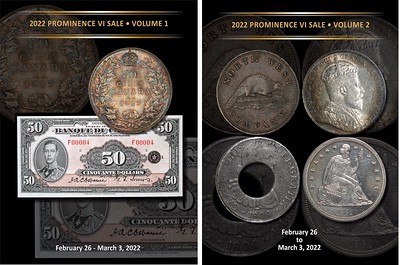 THE PROMINENCE VI SALE
THE PROMINENCE VI SALE
FEBRUARY 26 - MARCH 3, 2022
6 SESSIONS
OVER 2300 LOTS
TWO VOLUMES
VOLUME 1: SESSIONS 1 &2 LOTS 1-763
VOLUME 2: SESSIONS 3-4-5-6 LOTS 764-2313
This auction of more than 2,300 numismatic lots features three major collections joined by selections from over 70 other consignors across North America. The first and second Sessions are highlighted by three attractive coin and banknote collections. The South Shore Collection
of Canadian Copper, The MC Collection
of Military medals and Canadian bank notes, The Gem Collection
of Canadian banknotes and coins.
Volume 2, you will find sessions 3, 4, 5 and 6, it includes a huge assortment of bulk lots including tokens, coins, banknotes and world coins. Please note that there is NO RETURN privilege on bulk lots. Also, you will find a lovely selection of better material such as a Rare Holey dollar, an unlisted BL-19 token, one of the finest North West Company copper token, a couple of rare Lees, a few dozens of high end Canadian coins and banknotes
Also featuring in this auction; an elusive 1870 No LCW 50 cents in Mint State-63. An ultra rare 1887 25 cents in Choice AU55, a fantastic 1872H 10 Cents Gem Mint State-66, a very scarce 1932 50 Cents in Gem Mint State 65. A beautiful 1891 25 cents in Gem Mint State-65+, a stunning 1948 Specimen set. A great Canadian Treasure 1935 $50 French text with serial number F00004 in near Gem condition, a 1967 50 cents Upset dies in Proof condition, a great Proof 1935 $500 French text in Gem condition, a wonderful 1897 $2 Specimen example.
Several top graded coins & banknotes from The Gem collection
included in sessions 1 and 2. In addition, a superb selection of very scarce Proof and Specimen banknotes and several others including Rare Serial number issues and error notes. Again, The South Shore
Collection holds a premium selection of carefully chosen elusive copper issues.
Most of the coins are graded by ICCS or PCGS and each piece has been care fully selected and is attractive and proper for the grade attributed, some surprises and attractive issues.
The MC Collection
offers an outstanding selection of Military medals, decorations and banknotes, the two Jewels of this collection are: the extremely rare sheets from La Banque Du Peuple and The Dominion of Canada 1911 $1 notes. Both are believed to be Unique items. Several other attractive and stunning issues. In a second catalogue, you will find sessions 3, 4, 5 and 6, it includes a huge assortment of bulk lots including tokens, coins, banknotes and world coins. Please note that there is NO RETURN privilege on bulk lots.
This fantastic Prominence Sale VI event should make some spectacular moments and active evenings of auctioning. We expect this to be one of the most prestigious numismatic online events of 2022 featuring several rarities never offered to the public. Our sincere thanks to the consignors for entrusting us with the fantastic task of selling their collections. We hope you enjoy this catalogue as much as we enjoyed making it. This should be a memorable sale!
THIS AUCTION WILL BE UNLIKE ANY OTHER SEEN IN THIS COUNTRY
HIGHLIGHTS
Lot 36: Militaria; Distinguished Service Order, GRI (George VI), Distinguished Flying Cross (R.F.) dated 1944, India General Service Medal (George VI) 2 Clasps Northwest Frontier 1937-39, 1936-37 to (PLT OFF F.F. Lambert R.A.F), 1939-1945 Star, The Air Crew Europe Star Clasp France and Germany, The Africa Star, The Burma Star (Pacific Clasp), 1939-1945 Defence Medal, 1939-1945 Voluntantary Service Medal, 1939-1945 War Medal, Canada Service Medal, French Republic War Cross. A fabulous montage of 12 medals. Seemingly belonging to F.F. Lambert of the R.A.F.
Lot 124: Nfld 1904H 20¢ PCGS Superb Gem Specimen-68. Great fields with immaculate surfaces. Superb and alluring Specimen example white in colour with some perimeter tints. Priced at $5000 in 65 and unlisted above
Lot 202: 1889 5¢ PCGS Gem Mint State-65. A superb silvery gem example from the Cook Collection. An attractive and scarce date.
Lot 232: 1926 5¢ FAR 6 PCGS Very Choice Mint State-64 They single most difficult date of the series with only 4 coins graded in Gem Mint State-65 at PCGS. An extremely well preserved example.
Lot 256: 1872H 10¢ ICCS MS66. A superb Gem Top example with no better issues graded by ICCS. Coin offers sublime lustrous fields and spectacular sunset tones. An elegant example to add to the best of collections. This coin presents an important opportunity for Registry Set collectors.
Lot 260: 1893 10¢ Round Top 3 PCGS About Uncirculated-50. Actually a nice example for grade with just a hint of light strike on the 3. Overall an appealing key coin. Very scarce and desirable.
Lot 287: 1858 20¢ PCGS Gem Mint State-65. Superb Gem example displaying strong lustre under rustic tones. Coinage strike. 3rd finest graded by PCGS.
Lot 293: 1871H 25¢ ICCS Gem Mint State-65. A Near perfect obverse 2 example. An ICCS #2 example holding reflective fields complimented with a dash of rim edge golden toning. An excellent Victorian quarter.
Lot 301: 1887 25¢ ICCS Choice About Uncirculated-55. Very rare date example, displaying lots of luster and soft beige like tints. This one up for sale is the second best example seen and handled by us. However, there are three examples graded higher. This coin presents an important opportunity for Registry Set collectors and it offers a huge potential for the advanced collector or investor. Worth a premium bid.
Lot 303: 1891 25¢ PCGS Gem Mint State-65+. Those who collect PCGS registry sets know they do not holder in this grade point lightly. This coin is all there and makes a very logical argument to 66. Crisp and full strike with 'onion skin' orange toning starting at the rims. The eye appeal is sublime. Upside is all around this pure key date.
Lot 305: 1892 25¢ PCGS Gem Mint State-65+. A fully struck, hyper gem holding intense underlying luster.
Lot 340: 1870 No Lcw 50¢ ICCS MS63. Intense blues and fire red issue. The strike is quite sharp overall and unsually seen on this variety. Excessively rare for grade. The best example seen and handled by us. This particular coin would represent a major acquisition which will certainly be a highlight in any advanced collection.
Lot 341: 1871 50¢ PCGS/ICCS Choice Mint State-62, Nice high grade Victorian example displaying intense rainbow tones over sharp lustrous fields.
Lot 350: 1905 50¢ ICCS Choice About Uncirculated-58. Key date with full band strike and some sparce obverse toning. This is the second best example seen and handled by TCNC. We sold an MS63 in 2016 for $31,625, From the G. Keller Collection
Lot 354: 1929 50¢ PCGS Superb Gem Mint State-66. An exceptionally toned example with an overlay of pastel hues that intensify with rotation. Original surfaces are without any noteworthy issues, eye-appealing jewel.
Lot 355: 1932 50¢ ICCS MS65. WOW. A superior example, extremely appealing and attractive blast white with full radiant lustre.
Lot 426: 1948 Specimen Set; includes 6 coins all ICCS grade Gem Specimen-65 with exception of Cent and Dime graded Choice Specimen-64. A superb and attractive set, comes with original Box. Wow! A cool set!
Lot 441: UPSET DIES; 1982 $1 Nickel, Constitution, PCGS Gem Mint State-65. Superb example, pristine in all forms with light cameo finish. A gem Coin Alignment Error example.
Lot 541: La Banque Du Peuple; 1845 $5 (£1) CH-575-16-02-30, Uncut Sheet of 4 notes. Important to note that first 3 notes show Double stamped FIVE in green with last note showing only one stamped FIVE. First uncut $5 sheet from this bank ever seen and/or handled by us. Believed to be excessively rare. Worth a premium bid.
Lot 558: The Royal Bank of Canada; 1901 $5 #100613 CH-630-10-02-02, Legacy Currency Grading Choice Very Fine-25. Designated rust stain on face in right margin. An attractive early issue and nice condition.
Lot 559: The Royal Bank of Canada; 1901 $10 #060302 CH-630-10-02-08, Legacy Currency Grading Choice Very Fine-25. Designated with Small edge tear, and rust spot. Very scarce and early issue in nice condition.
Lot 630: 1935 $20 BC-9a #A003552 PMG Choice Uncirculated-62 EPQ. Large Seal variety. A rare high grade example with exceptional paper quality. The centering is off at bottom. Young Queen Elizabeth's portrait is seen on the face of the note. Excessively sacrce and desirable.
Lot 640: 1935 $25 BC-11 #A015786 PMG Gem Uncirculated-65 EPQ. An exceptionally desirable banknote in any grade, and especially so in Gem Uncirculated. A Spectacular full bodied and full coloured issue. A must for the High end collector or investor. This is among the best example seen and handled by TCNC. Worth a premium bid.
Lot 642: 1935 $50 BC-14 #F00004 French text PCGS Very Choice Uncirculated-64PPQ. Wow! An amazing Low numbered example. The Best of The Best, this is a pristine issue with great eye appeal, good margins and superb embossing. This would be an important addition to a major Canadian Museum, financial institution collection or a major highlight of a personal collection. Among the most impressive and most significant Bank of Canada banknote ever offered in our auction. A unique opportunity to acquire a true WOW note. A 'tasty' find for any serious collector and will most certainly serve as an absolute treasure in their collection. Excessively rare. Worth a premium bid.
To bid online, see:
https://auctions.canadiancoinsandpapermoney.com/auction/181/the-prominence-sale-vi-major-event
To read the .pdf catalogs, see:
https://www.canadiancoinsandpapermoney.com/wp-content/uploads/2022/01/TCNC-2021-Prominence-Sale-VI-LR.pdf
https://www.canadiancoinsandpapermoney.com/wp-content/uploads/2022/01/PROM-VI-VOL-2.pdf
GADOURY ANNOUNCES FERNAND DAVID SALE
Here is the press release for the March Gadoury sale of the Fernand David Collection. QUICK QUIZ: Who can spot the chronogram? -Editor
12 March 2022
Éditions Victor Gadoury and Alain Weil, Monaco
Fernand David Collection
Forgotten Collection to Enter the Market: The Fernand David Collection
Around 1900, he was one of the most important French collectors: Fernand David, whose general collection of gold coins will be auctioned on 12 March 2022 by Éditions Victor Gadoury and Alain Weil. You can expect some exciting surprises!
He was one of the most renowned collectors of his time: Fernand David, the rich Paris manufacturer of trimmings, lace and embroidery. Around 1900, leading French numismatists used David's collection to advance their research. They appreciated the charming and knowledgeable colleague, most of whose coins – like those of many other coreligionists – were stolen during the Second World War. Despite some gaps, his collection belongs to the important general collections focusing on antiquity and France!
Éditions Victor Gadoury and Alain Weil will jointly offer this incredible ensemble on 12 March 2022 in Monaco. The collection contains 870 lots, including great rarities such as a family aureus of Sextus Pompeius, extremely rare gold coins of the French kings and showpieces of the Féodales coinage, not to mention magnificent medals and distinguished historical testimonies.
The collection was assembled with the knowledge of an experienced numismatist and the money of a successful manufacturer, who – completely bound to the customs of his time – appreciated the historical importance of a piece more than perfect quality. Therefore, you can expect a lot – but not that each and every piece is extremely fine! Of course, there are numerous perfect coins, but also exciting pieces in very fine
condition. The Fernand David Collection is an ideal opportunity for every collector to acquire impressive coins from an even more impressive collection.
((No. 19 - Sextus Pompeius. Aureus, 42-38 BC, Sicilian mint. Very rare. Very fine. Estimate: 10,000 euros.))
((No. 27 - Caligula, 37-41, and his mother Agrippina the Elder. Aureus, Lyon. Rare. Very fine to extremely fine. Estimate: 7,000 euros.))
((No. 55 - Lucius Verus, 161-169. Aureus, 163-164. FDC. Estimate: 10,000 euros.))
((No. 62 - Septimius Severus, 193-211, and his wife Julia Domna. Aureus, 200-201. Very rare. FDC. Estimate: 13,000 euros.))
((No. 63 - Septimius Severus, 193-211, and his sons Caracalla and Geta. Aureus, 200-201. Very rare. FDC. Estimate: 15,000 euros.))
The Finest Aurei
A small series of Greek gold coins is followed by an extensive section of about 50 aurei, including great rarities – some of them of the finest quality. These include the rare portrait aureus of Sextus Pompeius featuring the portraits of his father and his brother, as well as rare aurei of the twelve Caesars and their family members such as Antonia, Drusus and Agrippina. If you love coins of outstanding quality, you should take a look at the aurei of Lucius Verus and those of the the Severan dynasty. The family issues by Septimius Severus featuring the portraits of Julia Domna and his sons Caracalla and Geta are downright spectacular. About 50 lots with late ancient and Byzantine solidi continue the offer; here, too, connoisseurs will find rare issues at favourable estimates – taking a look is definitely worthwhile!
((No. 113 - Philip IV the Fair, 1285-1314. Denier ou florin d'or à la Reine. About extremely fine. Estimate: 8,000 euros.))
French Gold Coins: Magnificent Testimonies of the Middle Ages
The collector paid special attention to the splendid gold coins of the French late Middle Ages of the era of the Hundred Years' War. About 70 lots originate from this period. As an example, we show you a Florin d'or of Philip IV, called the Fair, who is said to have invoked a curse on his descendants by destroying the Templars and such caused the war between his heirs in England and France.
((No. 197 - Henry II, 1547-1559. Double Henri d'or à la cuirasse damasquinée, Paris 1552. Rare. Very fine. Estimate: 4,000 euros.))
Exquisite Portraits of French Kings
As had to be expected from a French collector, the collection focuses on coins of the French royalty. The collector paid attention to both the rarity of the pieces and the quality of the portraits. Here you can see a rare double Henri d'or à la cuirasse damasquinée, minted in Paris
in 1522.
((No. 252 - Louis XV, 1715-1774. Double Louis aux insignes, Reims 1716. Very rare. Extremely fine. Estimate: 15,000 euros.))
((No. 253 - Louis XV, 1715-1774. Louis aux insignes – 1st Type, Lyon 1716. Extremely rare. Extremely fine. Estimate: 15,000 euros.))
The Portrait of Young Louis XV
When Louis XIV's great-grandson ascended the French throne in 1715, he was only five years old. Therefore, the coronation ceremony in Reims was postponed to 1722. Nevertheless, the Reims mint still minted coins during this period. Among its products is the very rare double Louis d'or aux insignes.
Almost rarer still is the single Louis d'or aux insignes of the first type of 1716 minted in Lyon. It was minted only for a few days at the beginning of the year.
((No. 267 - Louis XV, 1715-1774. Gold essai for the écu au Bandeau, Paris 1740. Very rare. Extremely fine. Estimate: 50,000 euros.))
A Gold Pattern for the Écu au Bandeau
Of utmost numismatic importance is this pattern for an écu au bandeau in gold featuring the magnificent youthful portrait of Louis XV. Even though the historical sources for this issue are rather poor, it seems that the king himself expressed the wish to replace his childlike portrait, which had been on his coins since 1726, with one that resembled his current appearance much more.
((No. 309 - Louis XVIII, 1815-1824. Gold essai of 40 francs, 1815 by Michaut. Extremely rare. Extremely fine. Estimate: 10,000 euros.))
((No. 313 - Napoleon III, 1852-1870. Gold essai of 5 francs, 1853 by Bouvet. 3rd known specimen. Very fine +. Estimate: 30,000 euros.))
Extremely Rare French Coins of Perfect Quality
If you are a collector of French coins, you should not miss out on carefully studying this catalogue – no matter what quality you prefer. There are exciting pieces for all collectors, even though we naturally limit this preview to spectacular rarities. However, there is also an extensive offer for smaller budgets. Estimates start already at 250 euros. Of course, the hammer price for this 19th-century show piece will be much higher: Auguste François Michaut, one of the most talented engravers of his time, created the portrait of Louis XVIII. Of course, he had a pattern made first.
Generally speaking, the Fernand David Collection contains a large number of interesting patterns, including a 1853 gold pattern and, minted a little later, a pattern for the 5 franc pieceof Napoleon III, of which only two specimens had been known so far.
((No. 395 - Henry II, 1547-1559. Teston, Paris 1558. Rare. Fine toning. Very fine +. Estimate: 400 euros.))
The Most Beautiful French Testons
Gold coins were not the only items Fernand David collected. He was interested in all French coins, which is why this auction provides any connoisseur with the opportunity to acquire a wealth of interesting issues from this magnificent collection – from the Middle Ages to the reign of Napoleon. The estimates are modest. They start at 100 euros and mostly remain in the three-digit range. The fact that Carolingian denarii and some of the most beautiful portraits of the French kings can be purchased for such a favourable sum should be an incentive for every connoisseur to carefully study this catalogue.
((No. 523 - Lorraine. Charles IV, 2nd rule 1661-1675. Charles d'or, 1669. Very rare. About extremely fine. Estimate: 10,000 euros.))
An Interesting Series of Lorraine Coinage
Foreigners sometimes forget how important the Duchy of Lorraine was in the early modern period. It sided with the Catholics in the Reformation and became a reliable partner of the Habsburgs and Bavaria. This made it the enemy of French kings – however, at the same time, this provided the Duchy with excellent opportunities to position its daughters in royal houses and to obtain high ranks in the Catholic military: Charles IV, for example, of whom an extremely rare 1669 Charles d'or au buste lauré is on offer, fought against France on the side of the Habsburg emperor in the Thirty Years' War!
Monnaies d'or Féodales
About 30 lots with gold coins of the Féodales, i.e. non-royal coinage from France, are on offer. Probably the most beautiful piece is a pavillon of the Black Prince, Edward of Woodstock, eldest son and heir to the throne of the British King Edward III, who, however, died before his father. The impressive coin, which shows him enthroned under a canopy, surrounded by ostrich feathers, is not only of perfect condition but also very well struck.
((No. 571 - Nuremberg. Triple gold ducat, 1806 commemorating the Peace of Pressburg. Extremely rare. Very fine to extremely fine. Estimate: 12,000 euros.))
((No. 575 - Great Britain. Elizabeth I, 1558-1603. Livre, undated. Very fine to extremely fine. Estimate: 10,000 euros.))
((No. 623 - Genoa. 12 1/2 doppie, 1649. Extremely rare. About extremely fine. Estimate: 150,000 euros.))
((No. 638 - Luxembourg. John the Blind, 1310-1346. Royal d'or. Very rare. Extremely fine. Estimate: 5,000 euros.))
((No. 650 - Poland. Michel Korybut Wisnowiecki, 1669-1673. Double coronation ducat 1669. Very rare. About extremely fine. Estimate: 6,500 euros.))
((No. 654 - Savoy. Charles Emmanuel, 1580-1630. 10 scudi, 1619. Extremely rare. Traces of mounting. Very fine. Estimate: 85.000,- Euro.))
World Coins
Regarding world coins, the spectrum of the collection ranges from Allemagne
to Vatican
. Fernand David collected his coins with a lot of historical and numismatic knowledge, which is why the collection contains numerous historically interesting coins, some of which you are seeing in this preview.
((No. 668 - Retaking of Belgrade from the Turks, 1688. Gold medal by Friedrich Kleinert. Rare medal of utmost historical importance. Extremely fine. Estimate: 20,000 euros.))
((No. 735 - Battle of Messina, 1718. Gold medal by G. W. Vestner. Very rare. Extremely fine. Estimate: 6,000 euros.))
((No. 761 - Religious medal, taler-size, late 15th / early 16th century. Extremely rare. Beautiful patina. Very fine. Estimate: 4,000 euros.))
European Medals
Showing the same appreciation of art, the collector was enthusiastic about medals, and the auction offers a rich selection of these pieces. The Ottoman wars, the Thirty Years' War, detailed portraits and historical views: if you appreciate medals, you should not miss browsing through this catalogue. Of course, the main focus is on France – even though exquisite works from many different regions can be found.
((No. 792 - Lorraine. Antoine, 1508-1544. Grand Écu au buste à mi corps du duc cuirasse. Very rare. Extremely fine. Estimate: 6,000 euros.))
((No. 816 - Memories of the French Revolution. Wax portrait, perhaps of George Washington. Estimate: 100 euros.))
Multiple lots for Investors and World Silver Coins
The auction closes with some lots of more common historical gold coins, which will be mainly of interest to investors, and with silver and bronze world coins. Here you can find more coins of the Féodales. The outstanding piece is an extremely rare and exceptionally well preserved grand écu by Antoine of Lorraine featuring his portrait.
The auction ends with souvenirs of the French Revolution, including a wax portrait that probably shows the American national hero George Washington, as well as sensibly assembled multiple lots.
You can order the catalogue at Éditions Victor Gadoury, 57, rue Grimaldi, 98000 Monaco; phone: +377 93 25 12 96; fax: +377 93 50 13 39; email: contact@gadoury.com. You can find the catalogue online at auction.gadoury.com, www.sixbid.com and www.numisbids.com. Of course, it is also possible to bid live on your computer at home via www.biddr.ch!
To read the earlier E-Sylum article, see:
FERNAND DAVID (1861-1927)
(https://www.coinbooks.org/v25/esylum_v25n04a19.html)
MORE ON FINDING THE HENRY III GOLD PENNY
Leon Saryan passed along this follow-up story from The Guardian about the rare Henry III gold penny that was recently found and sold. -Editor
A metal detectorist who gave up his hobby when he started a family, only to return to it when his children were old enough to nag him into taking them out detecting with him, has been rewarded with one of the most extraordinary finds – a fine example of England's oldest gold coin, which has sold for a record-breaking £648,000 at auction.
He will split the proceeds of the find with the landowner and plans to use his windfall to help fund the future education of his children, history-loving 13-year-old Emily, who has ambitions of studying archaeology at university, and Harry, 10.
Emily and Harry are very much a part of this story. I used to be a keen metal detectorist but once I had a family the detector ended up getting buried in a cupboard.
One day my wife said to me: ‘You realise you promised you'd take the kids metal detecting.' So, I said: ‘Right, kids, we're going detecting.' We found an Elizabethan coin, which they were so excited by. It really ignited my passion so I invested in a new detector.
The day after it arrived, I went out into this field. It was a bright, sunny day and within 15 minutes I found the coin. I knew it was gold but I had no idea how important it was.
To read the complete article, see:
‘I owe it to the kids': coin found by detectorist dad sold for £648,000
(https://www.theguardian.com/uk-news/2022/jan/24/devon-detectorist-13th-century-gold-coin-sold)
I enjoyed this piece from The Mirror about the finder's visit to thank Henry III for his family's good fortune. -Editor
On a visit to London yesterday to 'say thank you' to Henry III at his tomb in Westminster Abbey, Mr Leigh-Mallory said: I'm just a normal guy who lives in Devon with his family so this really is a life changing sum of money which will go towards their futures.
But it's not all about the money... it's an honour to be connected to this find and I will remember this day for the rest of my life.
He added: Had it not been for a promise I made to my children to go out searching... I do not believe this gold coin would ever have been found.
To read the complete article, see:
Dad explains how he'll spend £648,000 windfall from rare coin he found by accident
(https://www.mirror.co.uk/money/dad-who-found-rare-coin-26039910)
To read the earlier E-Sylum articles, see:
A NEW GOLD PENNY OF HENRY III
(https://www.coinbooks.org/v25/esylum_v25n03a24.html)
FINDING THE HENRY III GOLD PENNY
(https://www.coinbooks.org/v25/esylum_v25n04a32.html)
COINS OF THE LE CHAMEAU
In his Stack's Bowers blog article this week, Dave Bowers discusses the treasure of the Le Chameau, a French transport sunk near Nova Scotia in 1725. -Editor
During the night of August 25-26, 1725, the French 600-ton, 48-gun transport, Le Chameau, foundered in high winds on the rocks of Kelpy Cove, off Port Nova Island, Nova Scotia, Canada, just 12 miles from her destination of Fortress Louisbourg, The vessel went down taking all hands and passengers, including Guoillaume de Chazel, the newly appointed governor of Trois Rivieres and Intendant Begon's successor. ?
Salvage operations commenced from Louisbourg late in 1726, but the main gold and silver treasure the vessel carried was not recovered until 1965 when Alex Storm and his associates achieved success (although a few coins from the wreck had been found on 1914). The first coin identified by Storm was a 1724 Louis XV silver eco. After a division of the recovered treasure, which amounted to over 4,500 silver and gold coins and many artifacts, a large part was sold by Parke Bernet Galleries in December 1971 and realized nearly $200,000.
Le Chameau carried more than 82,000 livres tournois of gold and silver coin, which were meant to supply the colonial governors the funds to pay administrative and military expenses. No complete inventory listing of all the coins recovered from the wreck has ever been published. The most accessible list remains the auction catalog entries (Parke Bernet Galleries' auction sale of December 10-11, 1971), which the numismatic scholar will find useful for the gold coins, but unsatisfactory for the silver coins.
The ill-fated vessel carried gold Louis d'or mirlitons dated 1723 to 1725, including both reverse varieties (long and short fronds), struck at 24 different mints. In some cases, the coins salvaged represent the majority of survivors of their particular mintages. The silver ecus aux 8 L appear to be dated 1724 and 1725, the majority from the seaboard mints of Bordeaux and La Rochelle. A handful of older French coins was also recovered.
The auction catalog included photographs of some representative examples, primarily placed for type. The historical information presented has not been supplanted since, and the inventory listing of the coins to be included in the sale can still be used. The enumeration shows that 109 gold coins were dated 1723, 323 were dated 1724, and only 62 were dated 1725.
To read the complete article, see:
The Wreck of Le Chameau
(https://www.stacksbowers.com/News/Pages/Blogs.aspx?ArticleID=wreck-of-the-le-chameau)
COINS OF GERMANY'S 1849 FALSE START
The Künker firm published this article illustrated with some very affordable coins in their upcoming February sale, illustrating that "it's possible to buy a lot of history for little money." But serious collectors know that - you needn't be a millionaire to enjoy the Hobby of Kings. -Editor
On 1 and 2 February 2022, we will offer the collection of a connoisseur with high-quality coins and medals from medieval and modern times. We present three coins of this collection that are of utmost historical interest and remind us that Germany almost became a constitutional monarchy about two decades before that infamous day in Versailles.
Frankfurt. Doppelgulden 1849. Geprägt auf die Wahl des preußischen Königs Friedrich Wilhelm IV. zum Kaiser der Deutschland am 28. März 1849. Taxe: 3.000,- Euro. Aus Auktion Künker 360 (1./2. Februar 2022), Nr. 1418.
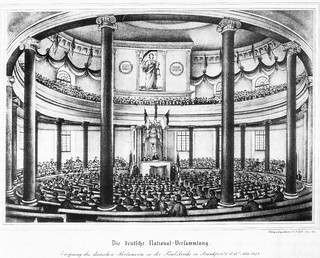 Elected Emperor of the German People, 28 March 1849, Frederick William IV King of Prussia – this is the legend on an 1849 double gulden issued by the constitutional assembly in the city of Frankfurt. Only 200 specimens of this rare issue were minted. And there was a good reason for it: the national assembly had not expected Frederick William IV to reject this title just a few days later.
Elected Emperor of the German People, 28 March 1849, Frederick William IV King of Prussia – this is the legend on an 1849 double gulden issued by the constitutional assembly in the city of Frankfurt. Only 200 specimens of this rare issue were minted. And there was a good reason for it: the national assembly had not expected Frederick William IV to reject this title just a few days later.
The German National Assembly was opened on 18 May 1848.
The German Revolutions of 1848
It all began with a pan-European economic crisis. Starving laborers and wealthy citizens that feared to lose their prosperity united their forces against all those absolutist regimes that were unable to come up with an appropriate answer for the needs and fears of their citizens. Throughout Europe, there was one uprising after another, and the German territories were no exception. There, an intellectual elite had long been demanding to participate in governmental activities and, what is more, to unify the country to form a German nation-state. By the end of March of 1848, the insurgents had become so powerful that all governments were forced to make concessions, including the election of a unified German national assembly. Under the lead of its president, Heinrich von Gagern, this assembly was to draft a constitution that was to unite all German territories to form a constitutional empire.
Hessen-Darmstadt. Ludwig III. Gulden 1848. Etwas berieben. Vorzüglich bis Stempelglanz. Taxe: 200,- Euro. Aus Auktion Künker 360 (1./2. Februar 2022), Nr. 1463.
The enlightened educated bourgeoisie made up the largest proportion of the deputies: 81.7%. Peasants and workers were completely absent from the assembly. The political priorities were set accordingly. A Hessian gulden from 1848 illustrates the priorities of the bourgeois revolutionaries: first and foremost, freedom of the press. The rebels had fought for this in many German territories, including the Grand Duchy of Hesse, as this 1848 gulden tells us.
It was minted on behalf of Grand Duke Ludwig II to make his concessions known throughout the entire people. Therefore, the person depicted on the obverse is not himself but his son Ludwig III, whom he appointed as co-ruler. After all, the people expected a young man to represent a more progressive government. Rulers were being replaced all over Germany at the time. Ludwig I of Bavaria, for example, stumbled over the Lola Montez affair. And dashing Franz Joseph succeeded his somewhat limited uncle Ferdinand in Vienna.
However, our gulden also shows something else, namely concessions of a kind that many rulers (temporarily) made at that time: freedom of the press, arming of the people, jury trials, freedom of religion, and a German parliament.
A German National Assembly
So, the German parliament or rather the German national assembly. It met in Frankfurt – a deeply symbolic decision: Frankfurt had been the old imperial city where the Electors had met to choose the next German ruler.
But we're not quite there yet. First of all, all the civil servants and professors who discussed the matter at St Paul's Cathedral considered it essential to draw up a binding catalog of basic human and civil rights. After all, this was the area in which they felt most comfortable. Everyone knew which state interventions hurt his own kind most. Every single deputy knew someone who had been imprisoned for a censorship offence. Therefore, the freedom of press was at the very top of their list of basic human rights, just as the freedom of association and assembly as well as the principle of academic freedom.
They discussed the subject of basic rights for months. And their efforts were not in vain: many of these phrases and contents are in force to this day because they were incorporated into the Basic Law for the Federal Republic of Germany. However, Germany paid a high price for this prioritization: discussing basic human rights delayed the process of forming an opinion about the future political institutions of a constitutional German empire. And by the time this point came up for discussion, the parliament had already made a fool of itself and the princes had regained power.
Schleswig-Holstein. Statthalterschaft 1848-1851. Kupfer-Sechsling 1850, Altona. Vorzüglich bis Stempelglanz. Taxe: 30,- Euro. Aus Auktion Künker 360 (1./2. Februar 2022)., Nr. 1743.
A Powerless Parliament
The Schleswig-Holstein Uprising revealed the true balance of power within the empire. In Schleswig, revolts had broken out against the Danish king, who tried to integrate this region into his kingdom. But the inhabitants of Schleswig considered themselves members of the German nation. The national assembly promised to help, but had to rely on Prussia to keep this promise. When Prussia was forced by foreign countries to conclude an armistice with the Danish king, some of the deputies did not want to accept this. By a razor-thin majority, the national assembly decided against ratifying this armistice on 5 September 1848. Less than two weeks later, the assembly revised its decision and accepted the armistice – again with an equally razor-thin majority. In this way, the assembly exposed how helpless it was and that the democratic system was limited since a few votes – sometimes leaning towards one side, sometimes towards the other – determined the outcome.
The 1850 copper sechsling is a reminder of the Schleswig-Holstein Uprising and the national assembly's attempt to overcome this crisis. As early as in March 1849, Denmark broke the armistice, triggering another war over the fate of Schleswig-Holstein. This time, the national assembly declared the territory a German lieutenancy area, and its government issued coins on behalf of Schleswig-Holstein from 1849 to 1851 – although the government actually only controlled Holstein.
At this point, we do not need to worry about the complex events revolving around the Schleswig-Holstein Question. What is important for us in this context is that the Frankfurt National Assembly had made a fool of itself, so much that proponents of a republican or even democratic constitution demanded that the national assembly be disbanded by force. While barricades were again erected in the streets of Frankfurt, deputies at St Paul's Church debated over academic freedom, relying entirely on Austrian and Prussian troops to protect them from the revolutionaries. Thus, the wheel of history had already been turned back. Following the motto only soldiers can help against democrats
(the German original quote rhymes much better!), the insurgents were suppressed by the military.
And while cannons roared, the members of parliament at St Paul's Church discussed whom they should elect as the ruler of their constitutional empire. The new Austrian Emperor Franz Joseph declared in good time that he, unfortunately, was not the right fit: he was the ruler of a multinational empire and as long as this empire could not be part of a German nation-state, he would rather refrained from such a leading position. This left the national assembly with the solution of a small
German nation-state under the rule of the Prussian King.
Brandenburg-Preußen. Friedrich Wilhelm IV. Gulden 1852, A, für Hohenzollern. Selten in dieser Erhaltung. Prachtexemplar. Winz. Kratzer, polierte Platte. Taxe: 200,- Euro. Aus Auktion 360 (1./2. Februar 2022), Nr. 1304.
Thus, on 27 March 1849, the deputies voted in favor of the new German constitution. On 18 March, they elected the Prussian King as Emperor of the Germans. On 2 April, the so-called Imperial Deputation entered the throne room of the Prussian King Frederick William IV and offered him the title of Emperor. We know what Frederick William IV thought about this from a letter he had already written in the December of 1848: A legitimate king by the grace of God... supposed to accept such an imaginary hoop, baked of dirt and mud...
No, Frederick William did not accept it. He officially rejected the crown on 28 April 1849.
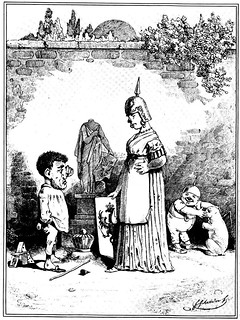 A contemporary caricature about Frederick William IV's rejection of the crown of the German Empire: On the left, a small boy with the features of Heinrich von Gagern in front of a house of cards; to his right a carved crown and a staff, which may be used as a scepter or to spin a top. Behind him the headless personification of the empire with the double-headed eagle. At this point, a personification of Prussia with spiked helmet and Prussian coat of arms has already taken control. Prussia stands in front of a little boy with the features of Frederick William IV, who is teaching a little dog to stand up on its hind legs with a whip. The accompanying text reads:
A contemporary caricature about Frederick William IV's rejection of the crown of the German Empire: On the left, a small boy with the features of Heinrich von Gagern in front of a house of cards; to his right a carved crown and a staff, which may be used as a scepter or to spin a top. Behind him the headless personification of the empire with the double-headed eagle. At this point, a personification of Prussia with spiked helmet and Prussian coat of arms has already taken control. Prussia stands in front of a little boy with the features of Frederick William IV, who is teaching a little dog to stand up on its hind legs with a whip. The accompanying text reads: Why are you crying, little puppet?
- I carved a crown for your small one, but now he doesn't want it!
Understandably, the rejection caused some consternation among the deputies. The minting of commemorative coins for the imperial election was stopped immediately, which is why only a few pieces exist.
Now it was the princes' turn. They dissolved the parliaments of their territories, which means that the deputies sent from there lost their legitimacy. Progressive deputies tried to establish a state on a democratic basis, whereupon many conservatives resigned their mandate once and for all. On 30 May, the remainder of the national assembly decided by 71 votes to 64 with 4 abstentions to move to Stuttgart as a precautionary measure because they feared that Prussia would invade Frankfurt. In Stuttgart, they were allowed to continue playing national assembly until 18 June, when the Württemberg king had the assembly, which still consisted of about 100 people, dissolved by force.
For the time being, this was the end of the efforts to establish a progressive German nation-state. The four coins presented here are numismatic testimonies to this history. We deliberately chose coins with estimates in the two-digit range as illustrations as well, to prove that that it's possible to buy a lot of history for little money.
To read the complete article, see:
Germany's False Start: The Unsuccessful Imperial Election of 1849
(https://www.kuenker.de/en/information/presseinformationen/aktuelle-mitteilungen/409)
JAPANESE MEIJI PATTERN COIN DISCOVERED
You never know when the next rare coin will come out of the woodwork. Here's the story of a great Japanese rarity discovered at routine appraisal. -Editor
Toovey's Coins, Medals & Banknotes auction on January 19 got off to a storming start as the very first lot – a Japanese Meiji 10 yen Year 3 pattern gold coin from 1870 – demolished an estimate of £50,000- 80,000 to sell for £260,000 (plus 24.5% buyer's premium).
It is currently one of only five known examples. Of the four others, one is in the Bank of Japan collection, another is in the British Museum and two were sold by Heritage Auctions in Dallas in 2011 and 2014.
This large flan coin pattern, with a diameter of 32mm and a weight of 15.6g, dates from just two years after the Meiji Restoration brought Japan nominally back to imperial control.
Under the New Currency Act of 1871, Meiji coins became standardised, smaller, round and identical (manufactured by Western machinery). They were known as yen – ‘small round object'. The 10 yen Year 3 pattern type was originally intended for general issue and was included in the new act. However, it was decided the relatively thin gauge would cause problems and a smaller diameter coin of the same weight was produced dated Meiji 4.
Discovered on a routine house clearance valuation appointment with a group of other gold coins at a local property, Toovey's example was described as extremely fine overall, dull mirror-like fields, sharp detailing with overall hairlining
. It came by descent from George Henry Williamson (1845-1918), a former mayor of Worcester, a manufacturer and a Conservative politician. It is thought likely by the vendor, however, that this coin was originally acquired by his father, William Blizard Williamson (1811-78), a tinsmith from Cork who founded the Providence Tinplate Works in Worcester in 1858.
George and his brother William Blizard the younger took over the company after their father's death. George deposited this coin with several others for some time at Lloyds bank in Worcester, incorrectly labelling it Chinese gold piece, suggesting that he was unaware of its full significance.
The lot was contested by three phones and two room bidders in Washington, West Sussex. The majority of the bidding, however, was left to a room bidder acting for a client in China and a phone acting for a client in the US. It was the latter that won.
To read the complete article, see:
Pick of the week: Meiji 10 yen pattern coin takes £260,000
(https://www.antiquestradegazette.com/print-edition/2022/january/2527/news-digest/pick-of-the-week-meiji-10-yen-pattern-coin-takes-260-000/)
ROYAL MINT YEAR OF THE TIGER GOLD COIN
Jim Contursi writes:
"Just a quick note to wish you, The E-Sylum and all the E-Sylum readers the best in the coming Year of the Tiger. May it prove to be a roaringly good one."
Thanks. As it happens, Jim's note is a timely way to introduce this story about the Royal Mint's new jumbo-sized Year of the Tiger coin. -Editor
A giant gold coin weighing a hefty 8kg has been unveiled to celebrate the Year of the Tiger.
It took more than 200 hours to etch the brand new design onto the surface to celebrate Chinese New Year.
An image of a tiger stands proudly on the coin with its Chinese character placed next to it – combining British and Chinese culture.
And if you look closely, the Chinese character for ‘king' is subtly hidden on the big cat's forehead.
While machines were used to engrave the coin, a ‘master toolmaker' made sure to inspect it before its release, carefully papering the metal to remove any marks made from the cutting process.
The coin was then painstakingly polished, by hand, for 100 hours before experts were happy.
Taking advantage of new technology, the 185mm-sized creation was then laser frosted for 50 hours to create a brilliant shine.
The new release has been added to Royal Mint's Masterworks coin range and popular Shengxiào collection.
The weight of the coin, 8kg, was chosen due to the number eight being considered the luckiest number in Chinese culture and one associated with wealth.
It is available to be purchased by a collector, with the price available upon application to the Royal Mint.
To read the complete article, see:
Giant 8kg gold coin celebrating Year of the Tiger unveiled by Royal Mint
(https://metro.co.uk/2022/01/28/chinese-new-year-royal-mints-huge-coin-celebrating-year-of-the-tiger-16006188/)
To read the complete article, see:
Royal Mint reveals huge 8kg gold coin to celebrate Year of the Tiger
(https://www.youtube.com/watch?v=IBZ725sJ2Gw)
HIGH GRADE CONFEDERATE MONTGOMERY NOTE
Wow. I collected Civil War numismatica for many years and was lucky to own a couple examples of the 1861 Confederate Montgomery notes. But I've never seen one in such high grade as this example being offered by Stack Bowers in their Spring 2022 U.S. Currency Auction. Unreal. Here's a blog article by Stacks Bowers Paper Money Researcher & Cataloger Christopher Dahncke. -Editor
This is the first public auction appearance of an Uncirculated T-3 in a PMG holder. About 1,600 Montgomery $100 notes were issued, with a little over 150 known to exist today. PMG has graded 45 examples of this type, with this piece sitting proudly atop the Population Report.
This type was engraved and printed by National Bank Note Company in New York. Neatly penned signatures of Clitherall and Elmore are found at the bottom of the note, with an endorsement of "Issued May 31, 1861" on the reverse. The front of the note depicts allegorical Minerva (or Columbia if you are a Northerner) at left, with a train pulling into a station at center. At upper right is an ornate die counter in jet black ink, while the border and protector are in dark green. The paper is also bright, accentuating the design details, especially the dark navy-blue serial numbers. The place of issue is Montgomery, as seen next to the lower serial number. The capital of the Confederate States of America was moved from Montgomery to Richmond on May 29th, 1861.
The T-3 is often regarded as one of the most beautiful types of Confederate paper issued and it is easy to see why. Wonderful craftsmanship perfected by the National Bank Note Company adds exceptional flair, while the paper quality of these NBNC notes is far superior to examples later issued by the Confederacy. This note is un-cancelled and will surely create quite a buzz among Confederate collectors looking to upgrade. This is one of the most attractive examples of this type your cataloger has seen, and we would not be surprised to see the high estimate met or exceeded when this beauty crosses the auction block this spring. PMG Pop 1/None Finer.
To read the complete article, see:
Sensational Choice Uncirculated Confederate T-3 1861 $100
(https://www.stacksbowers.com/News/Pages/Blogs.aspx?ArticleID=1861-100-dollar-uncirculated-stacks-bowers-galleries)
COIN COLLECTING MAKING A COMEBACK
Last week's New York Times article on young coin collectors attracted wide interest. Ralph Gardner Jr., a columnist for The Berkshire Eagle wrote about it. -Editor
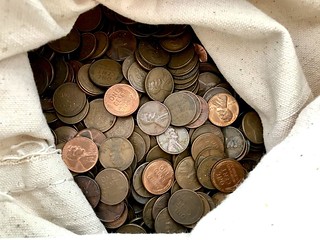 Scratch, an illustrated column about money that runs in the Sunday New York Times, last week addressed a subject close to my heart: coin collecting.
Scratch, an illustrated column about money that runs in the Sunday New York Times, last week addressed a subject close to my heart: coin collecting.
My daughter Lucy brought the column to my attention. She follows Julia Rothman, its illustrator, and was familiar with my childhood interest in coins.
Ms. Rothman initially reached out to millennial and Gen Z members for a story about stamp collecting but was informed the hobby was on life support. I could have told her that.
I inherited my father's stamp album. When I took it to be appraised at Champion Stamp in New York City I discovered that interest in stamps and collecting them had fallen so precipitously that the album was worth only $700. A few decades back it would have been valued at several multiples of that.
However, Ms. Rothman and her co-author, Shaina Feinberg, discovered that there was an adjacent hobby that might be enjoying signs of a renaissance among a demographic that has years to go before they're eligible for Social Security: coin collectors. Not Bitcoin collectors. But those who pursue rare pennies, nickels, dimes, quarters, etc. The news did my heart good and not just because I'm sitting on irrational quantities of wheat pennies.
I suspect that one reason coin and stamp collecting hold little allure for today's youth is because they're distracted by shinier objects. Finding a World War II steel penny in your change and pressing it into the designated hole in your coin album can't compete with fighting off zombies and saving the world on an online video game.
One of my peak coin collecting experiences came in 1964 when I visited Washington, D.C., with my mother the week that the John F. Kennedy half dollar was released to the public.
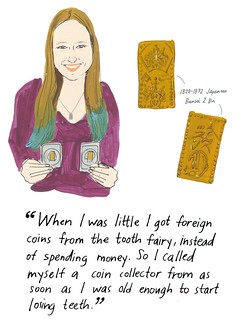 If you'll indulge me I'd like to quote from her diary of March 25, 1964.
If you'll indulge me I'd like to quote from her diary of March 25, 1964. We had dinner at Duke Zeibert's restaurant, which is right across the street from here.
Duke Zeibert's was a legendary Washington, D.C. watering hole across the street from the Mayflower Hotel on Connecticut Avenue. The waiter there, a very friendly fellow called Maxie, gave Ralphie one of the new Kennedy half-dollars which came out today. They were all sold out and we couldn't get them anywhere so Ralphie was absolutely thrilled with it.
I still am. It's sitting in my coin box alongside the 1891 Morgan silver dollar the tooth fairy brought me when my first tooth fell out.
Could the Tooth Fairy be a secret numismatic Johnny Appleseed? -Editor
To read the complete article, see:
Ralph Gardner Jr.: Is coin collecting making a comeback?
(https://www.berkshireeagle.com/opinion/columnists/ralph-gardner-jr-coin-collecting-making-a-comeback/article_dbaa01e2-804f-11ec-906f-735f49df35d1.html)
To read the earlier E-Sylum article, see:
NYT FEATURES MILLENNIAL AND GEN Z COLLECTORS
(https://www.coinbooks.org/v25/esylum_v25n04a24.html)
HOW TRUMP COINS BECAME INTERNET SENSATION
Arthur Shippee and Mel Wacks passed along this New York Times story on how those Trump Coins came to dominate the Internet ad space. It's an interesting detective story and lesson in online marketing. Here's an excerpt - see the complete article online. -Editor
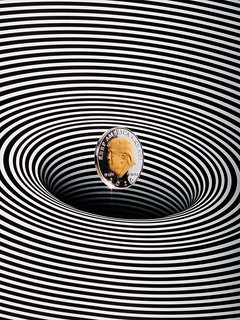 The novelty coins are simple, glistening tokens of admiration for former President Donald J. Trump. They're also one of the hottest products going.
The novelty coins are simple, glistening tokens of admiration for former President Donald J. Trump. They're also one of the hottest products going.
There's a style for every taste, each featuring a portrait of Mr. Trump. Sometimes he's rendered in gold, staring thoughtfully into the distance. In others he's smirking in silver, raising a thumb's up, or even riding a missile while a bald eagle soars behind him.
Among all the options, one version stands out. Known online as simply the Trump coin,
it has become a favorite of right-wing social media and fringe news sites. It's advertised between claims of stolen elections or conspiracy theories about global cabals. Some ads even describe the coin as a kind of cryptocurrency, suggesting it would soon be worth thousands.
The coin itself features Mr. Trump's face embossed in gold on a base of shining silver. His slogan, Keep America Great,
is written in an arc atop his head.
It could be yours, too, for just $0. (Plus $9.99 shipping and handling.)
This particular version has become something of an internet mystery. It's not obvious who's promoting it or profiting from it. It's sold by a mysterious news website about which little is disclosed. Mr. Trump has nothing to do with the coin. No identifiable company is taking credit.
Some internet sleuths have followed digital bread crumbs to suss out the organizations behind the coin's popularity. The New York Times took a similar path, tracking a network of advertisers and following their activity from public storefronts to private marketing portals. Using guidance from insiders and marketing veterans, the search crisscrossed the globe, implicating a handful of companies and a legion of anonymous marketers operating in parts unknown.
What became clear was not just the coin's unusual origins, but an entire disinformation supply chain that relied on falsehoods and misinformation at nearly every step. Fueling the coin's success were fake social media accounts that pushed false ads and a fleet of misleading news websites that preyed on partisan discontent.
Seen in full, the coin illustrates what watchdogs have long understood: Many untruths that Americans encounter online aren't created by foreign actors trying to sow division. They simply exist to help someone, somewhere, make a quick buck.
In one post, a fake account for Representative Marjorie Taylor Greene, a Georgia Republican closely aligned with Mr. Trump, shared a fake story on a fake Fox News website about a fake tweet by a fake Elon Musk, falsely claiming that Tesla's chief executive would soon accept Trump coins as payment.
Merchandise has long been a part of the political culture surrounding presidential elections. But Mr. Trump's victory in 2016 created a new and more ravenous appetite for the goods. That's where the Trump coin first took shape, according to Maxwell Finn, an affiliate marketing expert and president of Unicorn Innovations.
Mr. Finn was on the ground floor in 2016, advising on one of the first Trump coins of the modern political era.
That early coin did really well, and whenever something does well, you have hundreds of people trying to copy it,
said Mr. Finn, who was not involved with the current Trump coin.
To read the complete article, see:
How Trump Coins Became an Internet Sensation
(https://www.nytimes.com/2022/01/28/technology/trump-coins.html)
LOOSE CHANGE: JANUARY 30, 2022
Here are some additional items in the media this week that may be of interest. -Editor
Fifteen year old Canadian Jaireet Chahal collects King George VI specimen coinage of all denominations. He was highlighted this week in a Canadian Coin News article. -Editor
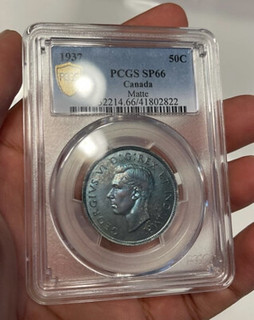 Jaireet started collecting coins because it
Jaireet started collecting coins because it seemed like an attractive idea.
Jaireet stayed with numismatics as a hobby because of the amazing friends and connections made through Instagram and other social media platforms.
Jaireet is a great example of younger generations modernizing numismatics and collecting in the digital realm.
To read the complete article, see:
Young Collector Highlight: Jaireet
(https://canadiancoinnews.com/young-collector-highlight-jaireet/)
To read a related earlier E-Sylum article, see:
NYT FEATURES MILLENNIAL AND GEN Z COLLECTORS
(https://www.coinbooks.org/v25/esylum_v25n04a24.html)
Joshua McMorrow-Hernandez published an article on the PCGS site about coin books! Check it out. What Was YOUR first coin book? -Editor
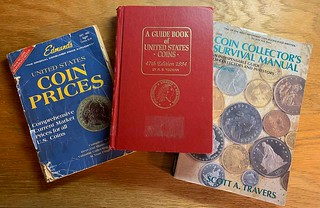 The first numismatic book my parents ever bought me was written by the late, great Margo Russell and was entitled Start Collecting Coins. It featured a blister pack containing a handful of uncirculated foreign coins, which immediately launched my curiosity about the coins I couldn't find in my domestic United States pocket change. My first pricing book came a few weeks later, when my parents purchased the October 1992 edition of Edmund's United States Coin Prices; this little blue book boasted a gorgeous photo of an 1804 Draped Bust Dollar, a coin I immediately fell in love with and decided I must have someday. When I realized the coin, then worth several hundred thousand dollars (no coin had publicly sold for $1 million or more at that time), was all but an impossible dream for me, I lowered the bar some to acquiring any Draped Bust Dollar. I did about 20 years later (and, no, it's definitely not an 1804 Draped Bust Dollar!).
The first numismatic book my parents ever bought me was written by the late, great Margo Russell and was entitled Start Collecting Coins. It featured a blister pack containing a handful of uncirculated foreign coins, which immediately launched my curiosity about the coins I couldn't find in my domestic United States pocket change. My first pricing book came a few weeks later, when my parents purchased the October 1992 edition of Edmund's United States Coin Prices; this little blue book boasted a gorgeous photo of an 1804 Draped Bust Dollar, a coin I immediately fell in love with and decided I must have someday. When I realized the coin, then worth several hundred thousand dollars (no coin had publicly sold for $1 million or more at that time), was all but an impossible dream for me, I lowered the bar some to acquiring any Draped Bust Dollar. I did about 20 years later (and, no, it's definitely not an 1804 Draped Bust Dollar!).
I wouldn't own my first copy of A Guide Book of United States Coins until 1994, when I received a copy of this annual publication famously dubbed The Red Book
for my 13th birthday. Suffice it to say, this book provided me with an incredible source of basic knowledge on many fronts, and I still to this day recommend any collector begin their numismatic journey with a contemporary edition of A Guide Book of United States Coins, a volume that has only grown in size and scope since I received my first edition all those years ago.
To read the complete article, see:
What Was Your First Coin Book?
(https://www.pcgs.com/news/what-was-your-first-coin-book)
In the I'm-so-mad-I-could-EAT-MONEY department, a woman in Vietnam was hospitalized after eating $550 worth of banknotes. -Editor
In a fit of anger with her family, a 31-year-old woman in Dak Lak Province swallowed 25 VND500,000 banknotes (worth $551.88) that had to be surgically removed.
A doctor picked up 13 banknotes after doing an endoscopy. Next, the patient was transferred to the operating room, anaesthetized, and the remaining 12 notes were removed from her stomach.
The patient was recovering well after the surgery, doctors said.
To read the complete article, see:
Woman swallows $550 in banknotes, hospitalized
(https://e.vnexpress.net/news/news/woman-swallows-550-in-banknotes-hospitalized-4422908.html)
FEATURED WEB SITE: WORLDWIDE BI-METALLIC COLLECTORS CLUB
This week's Featured Web Site is the Worldwide Bi-Metallic Collectors Club.
The Worldwide Bi-Metallic Collectors Club (WBCC) is the Internet gathering place for collectors interested in Bi-Metallic and Tri-metallic Coins, Medals, Tokens, Encased Coins, Ecus and Euros. Founded September 14th, 1996, the WBCC was the very first Internet Coin Club.
This site has become the largest online source for bi-metallic coin information and includes an extensive Image Library, as well as, production information. You're welcome to come in and have a look around.

